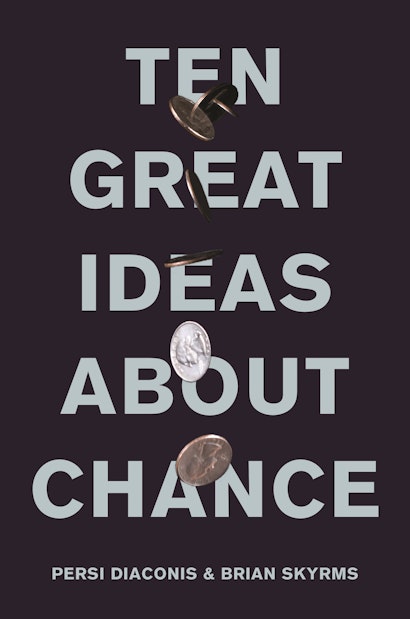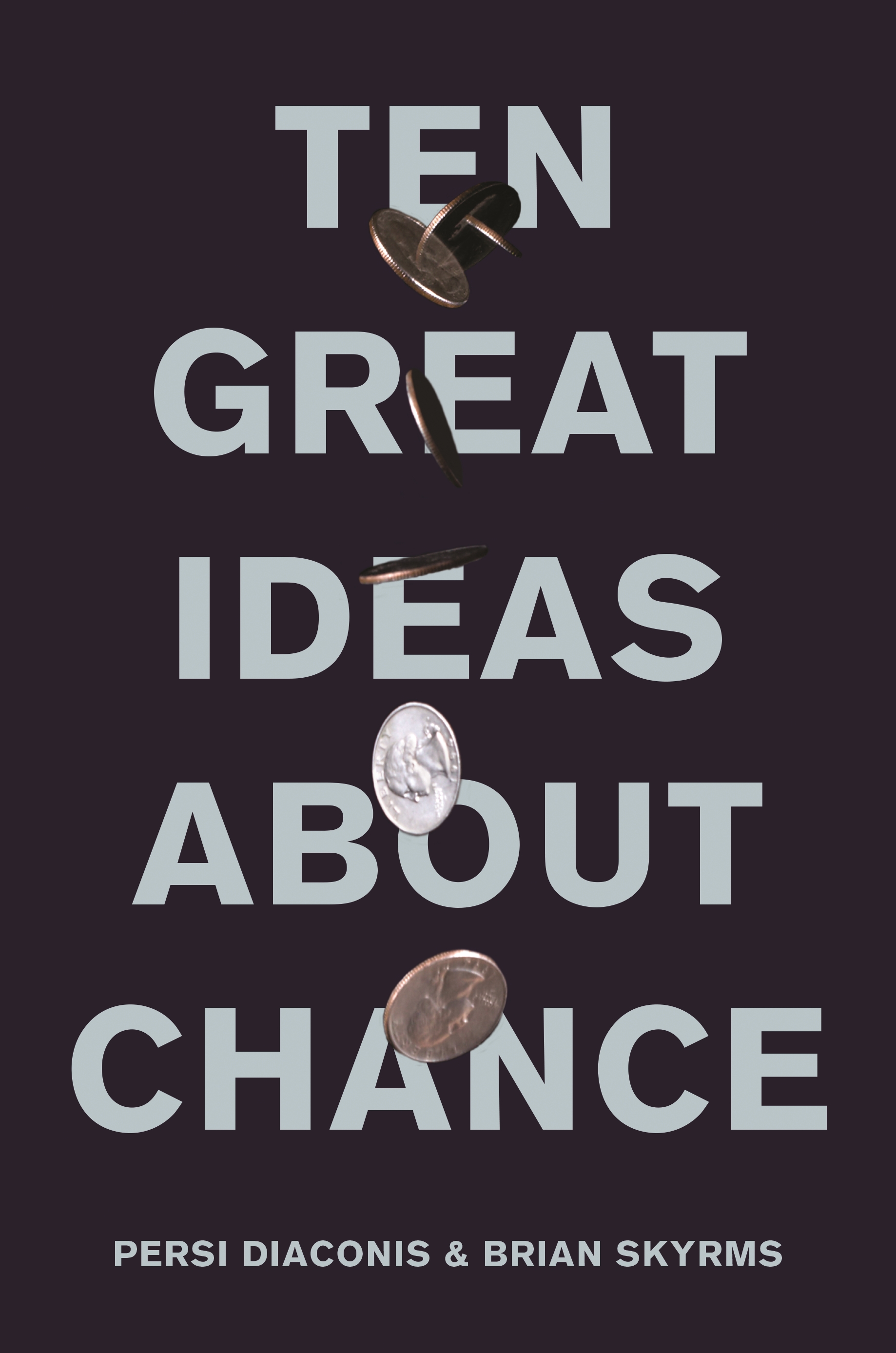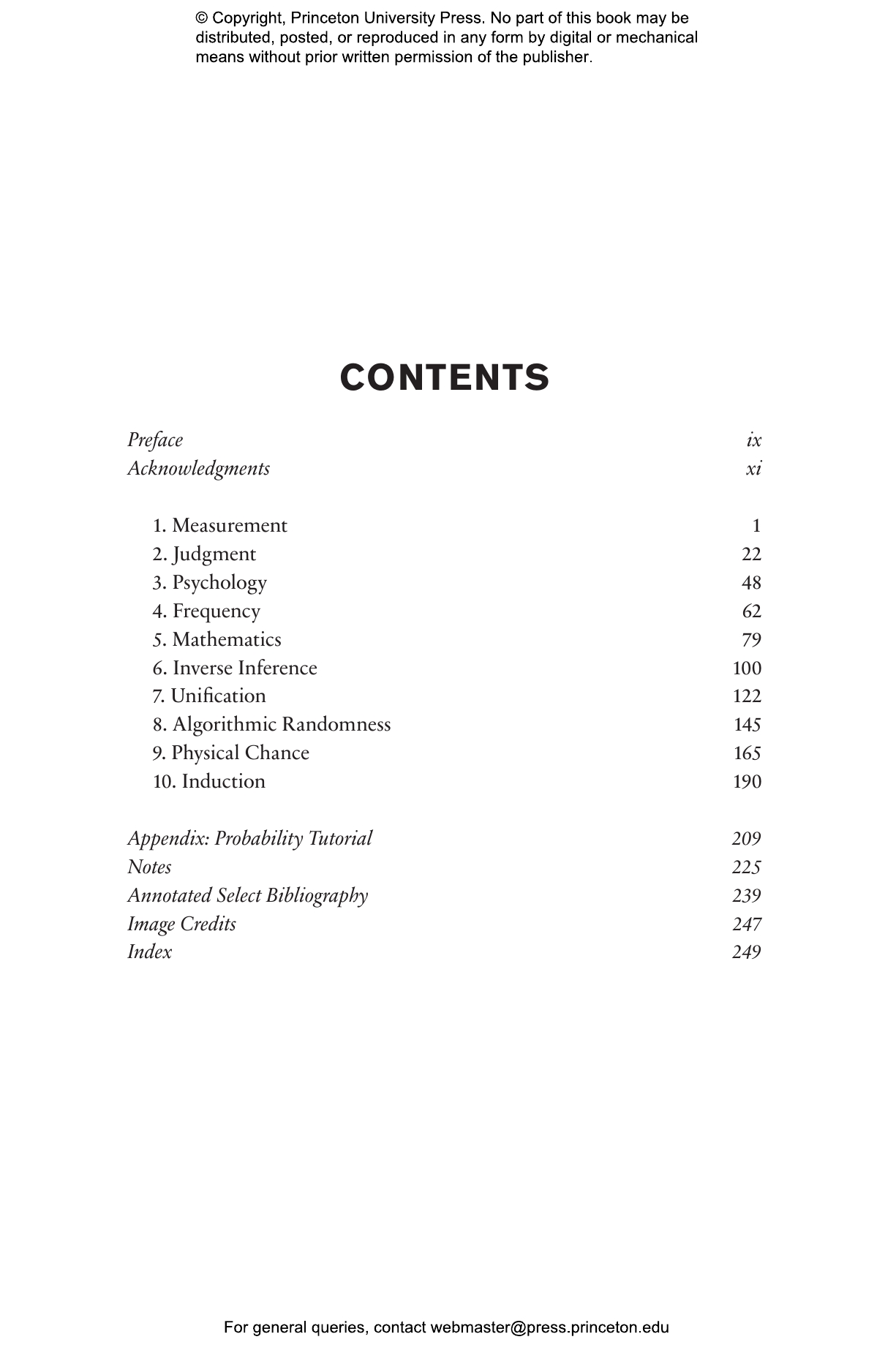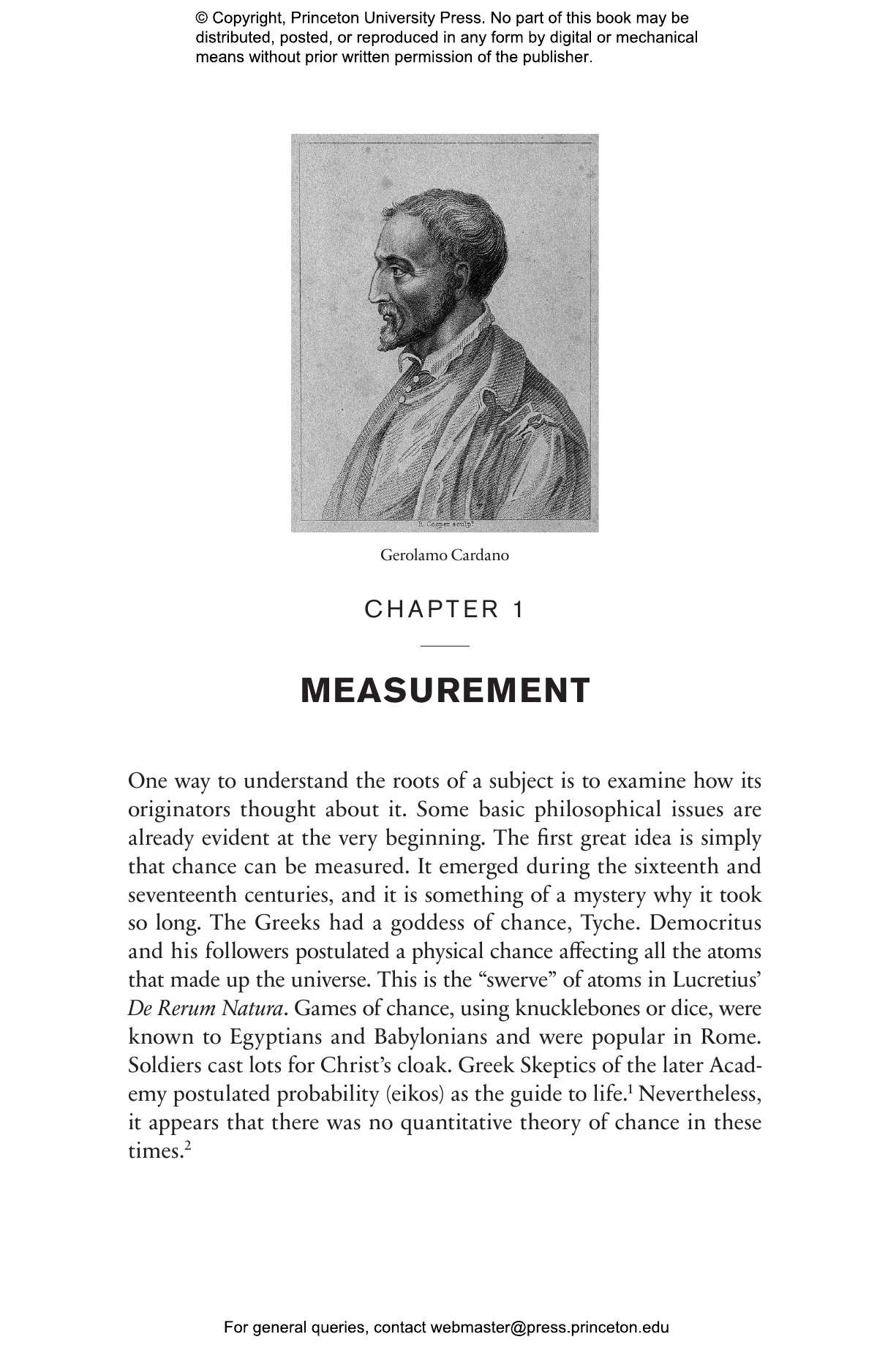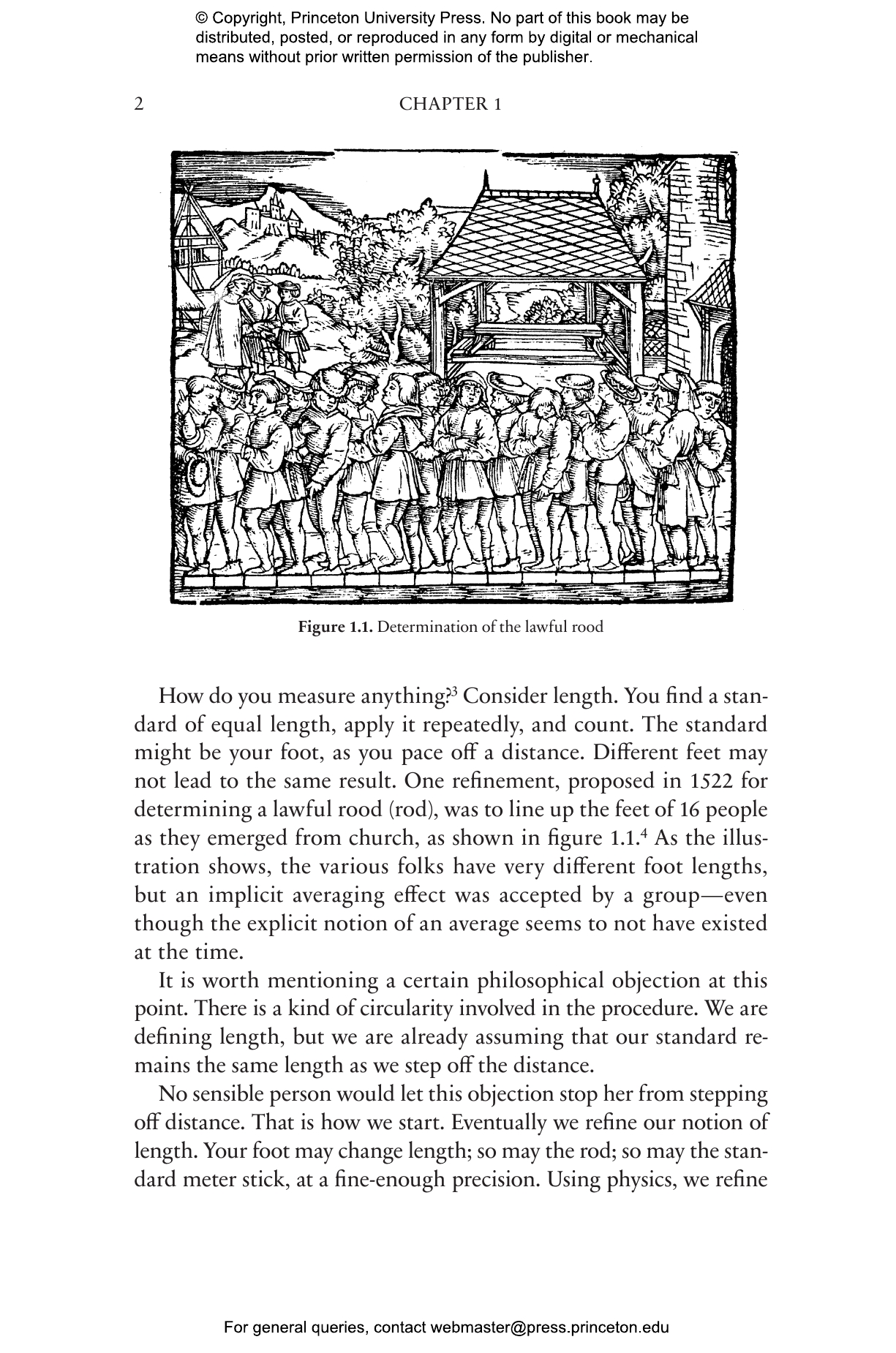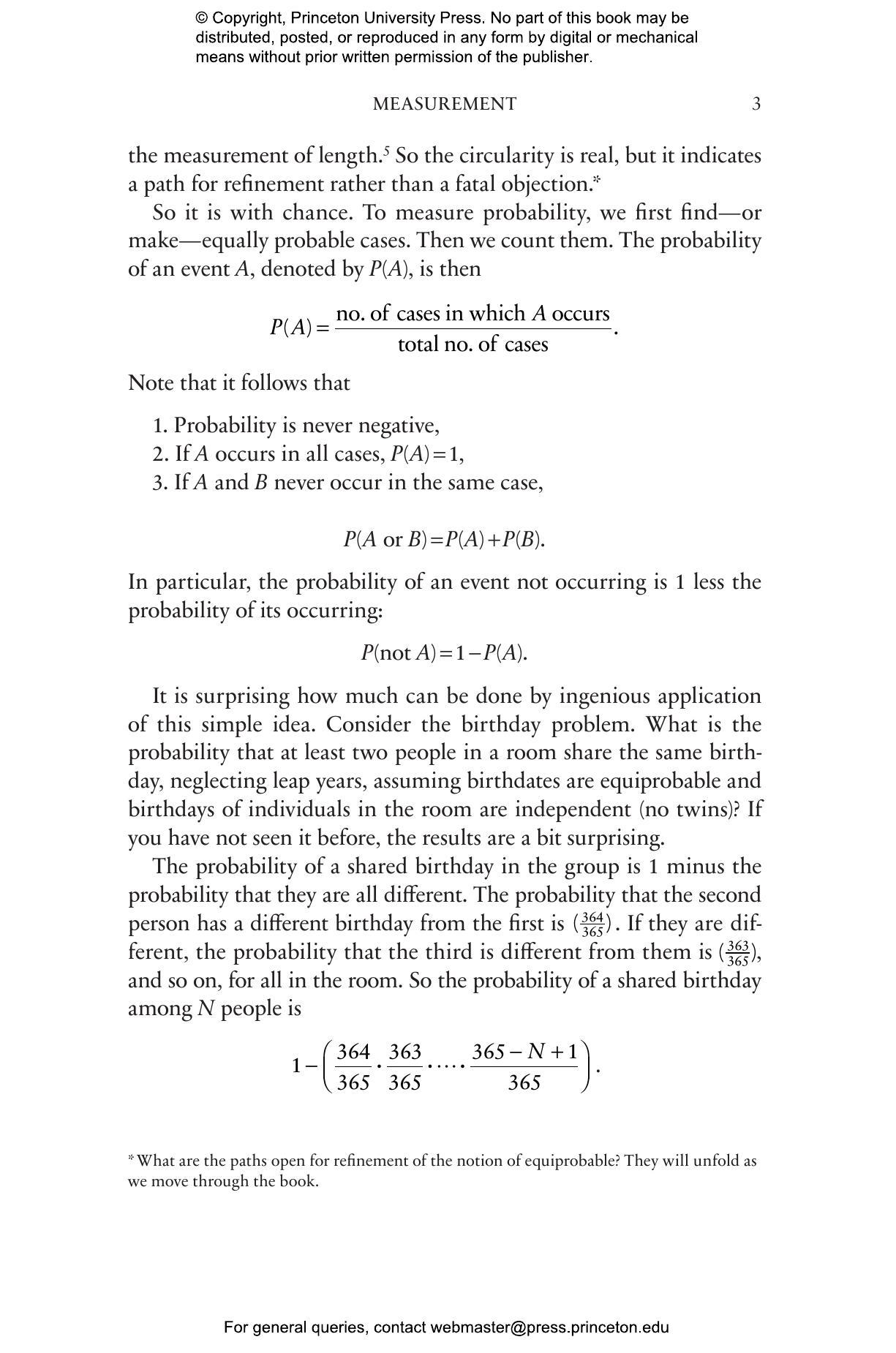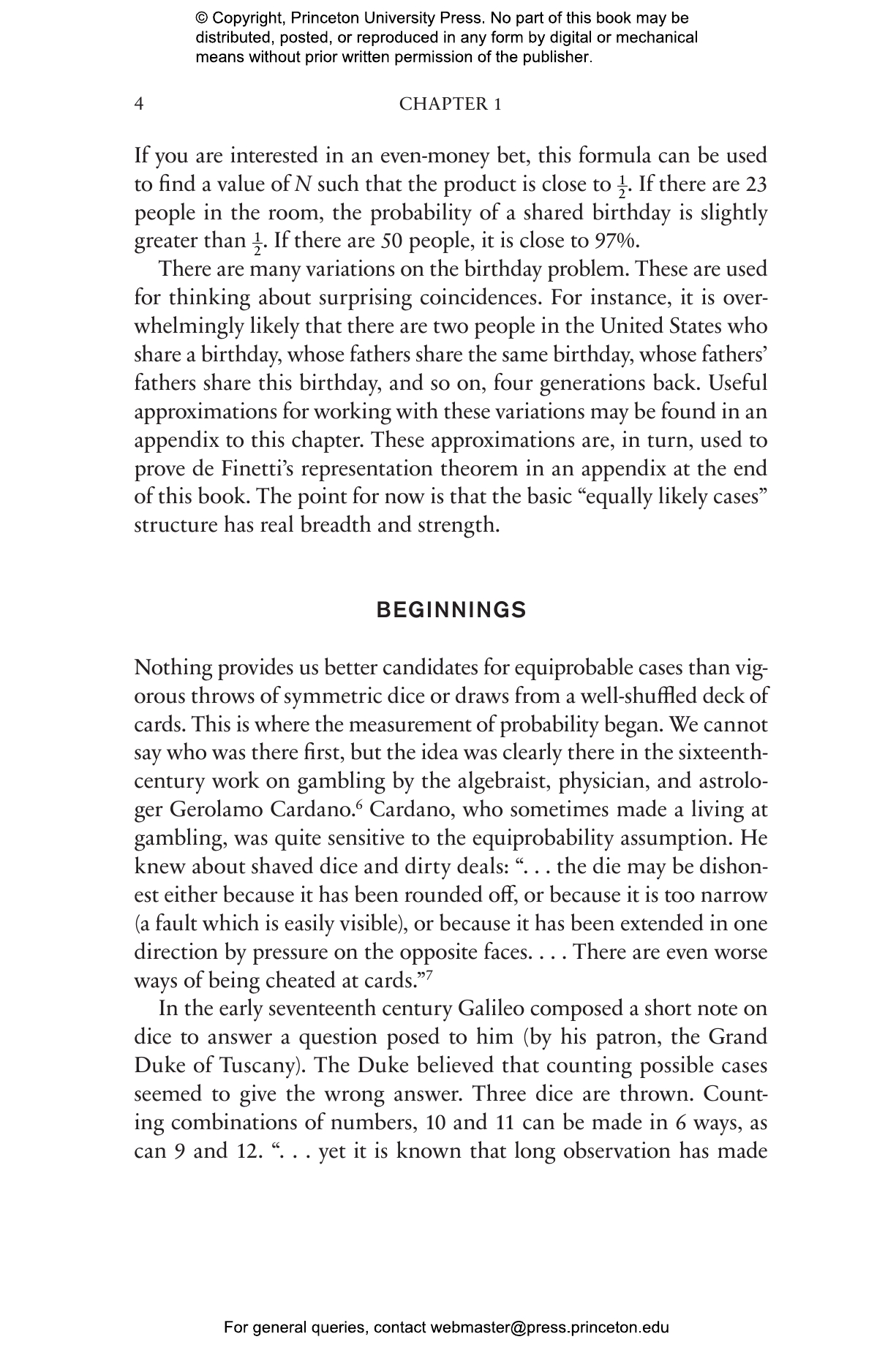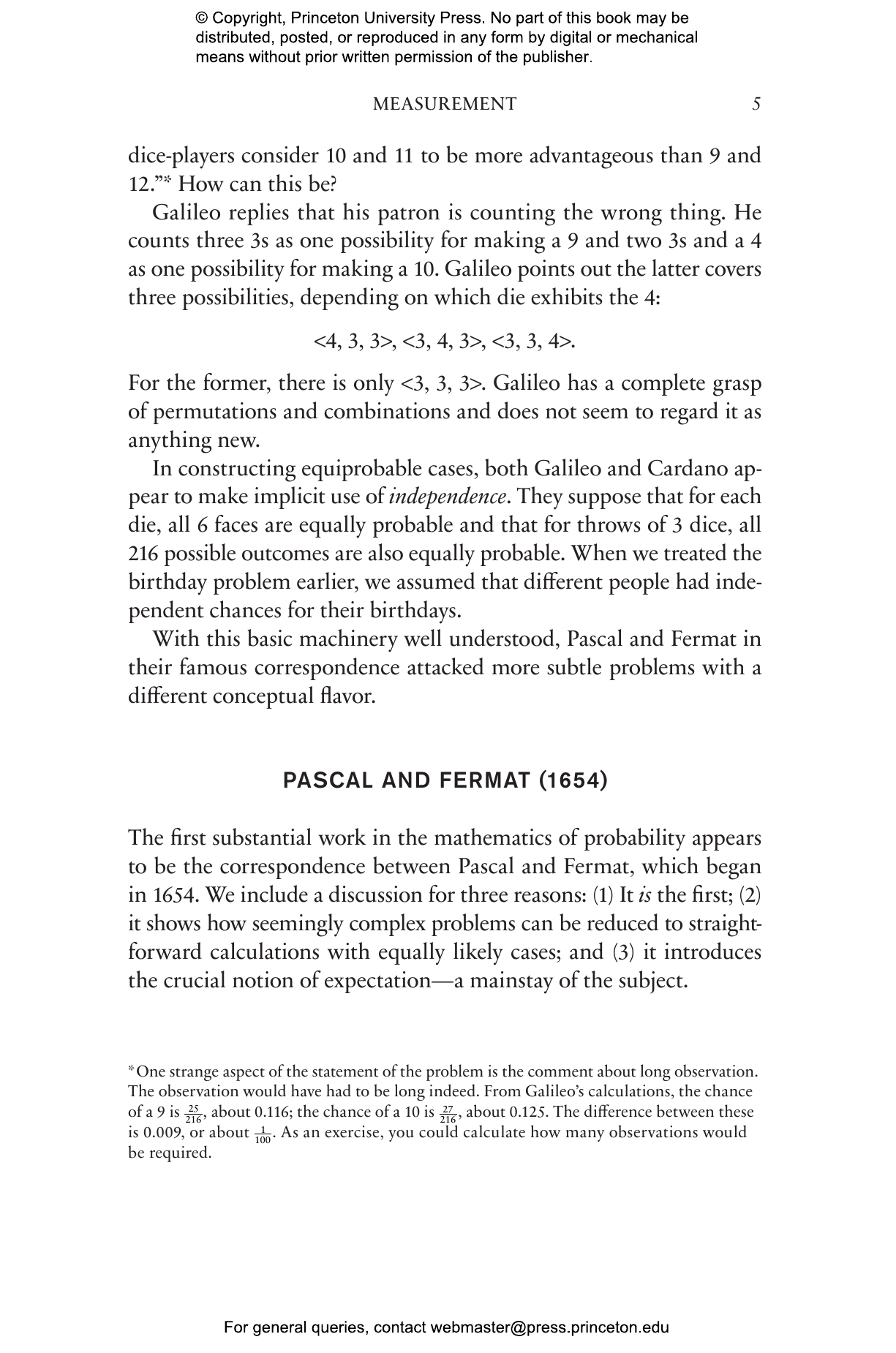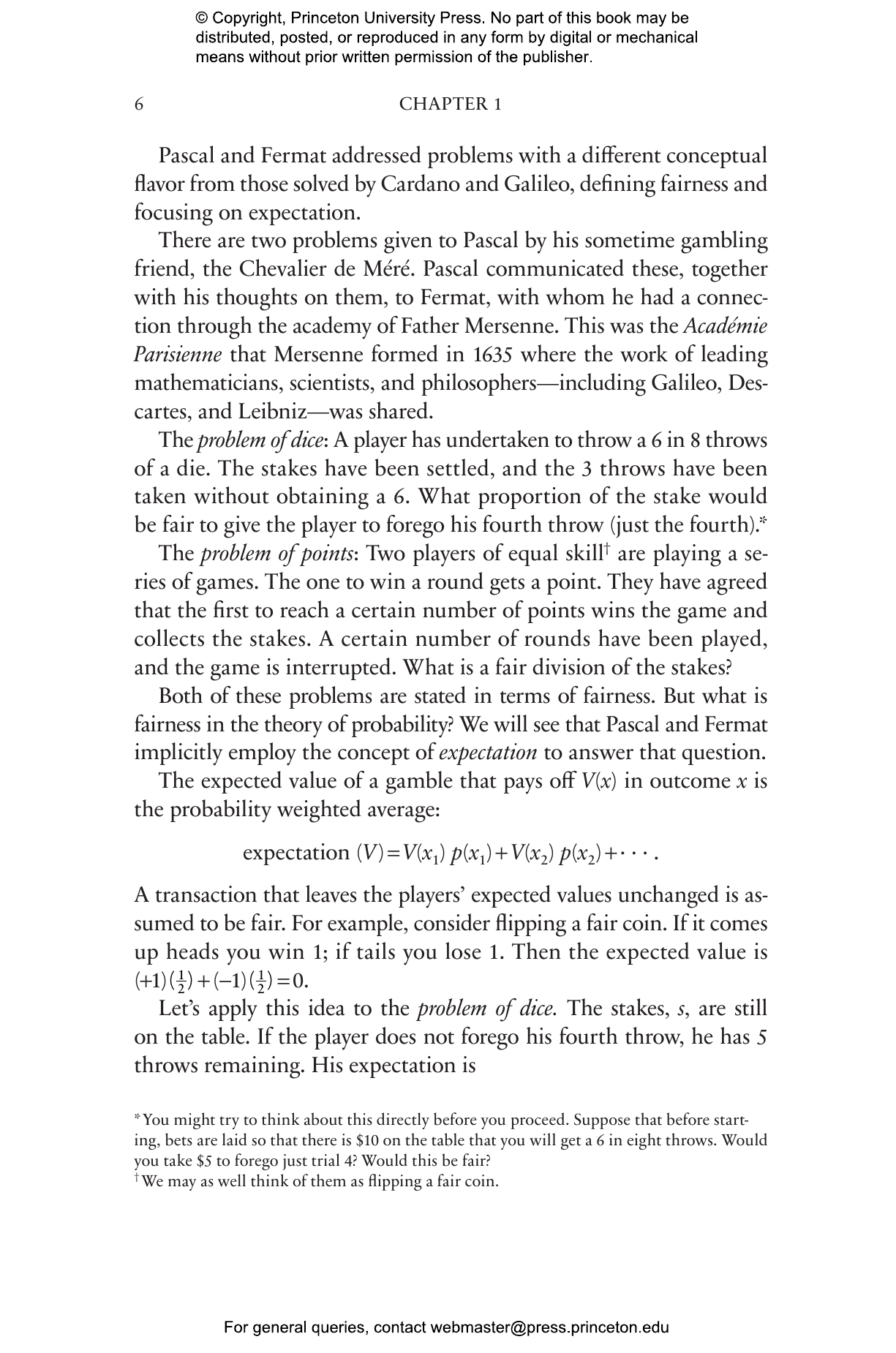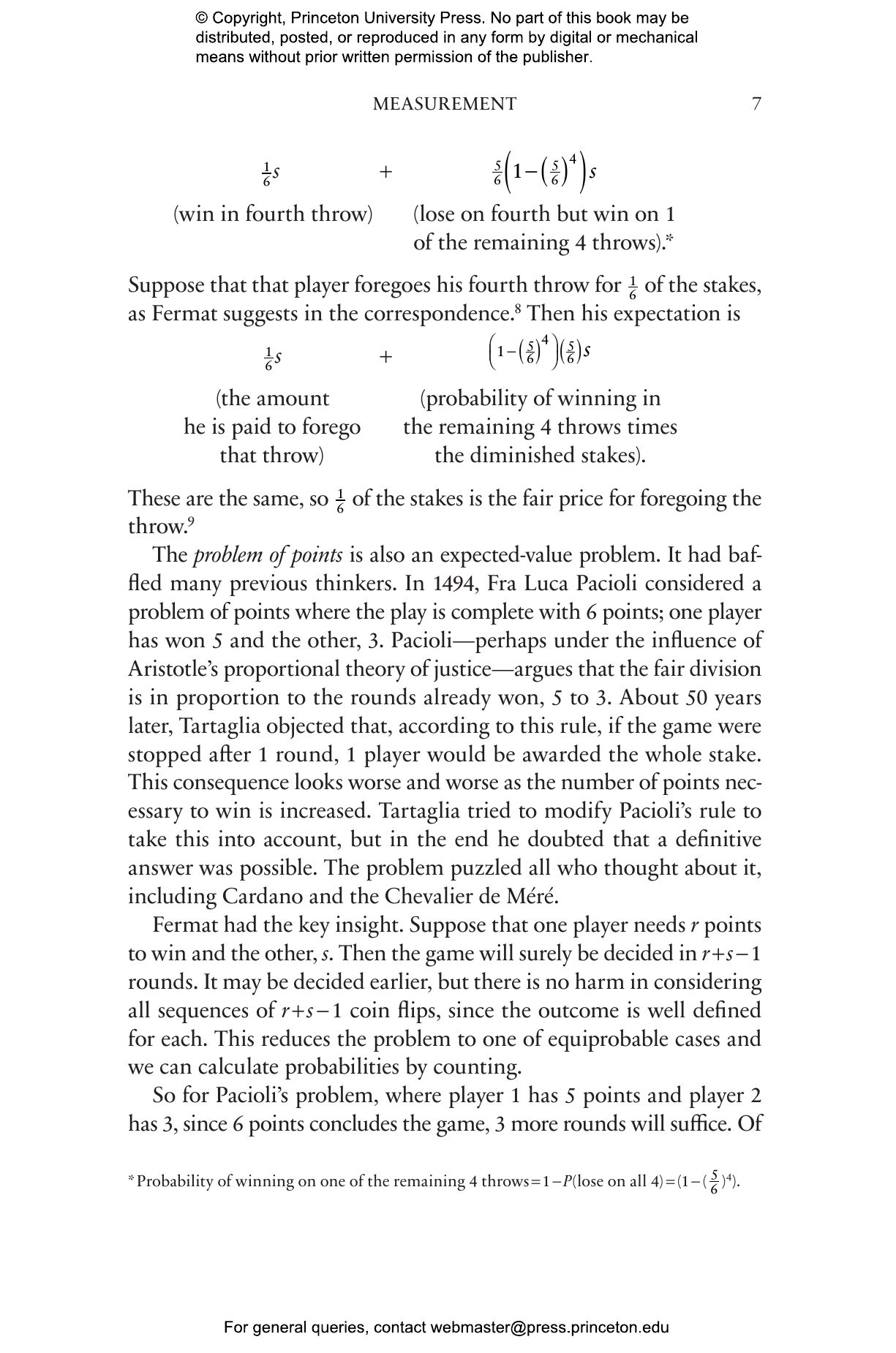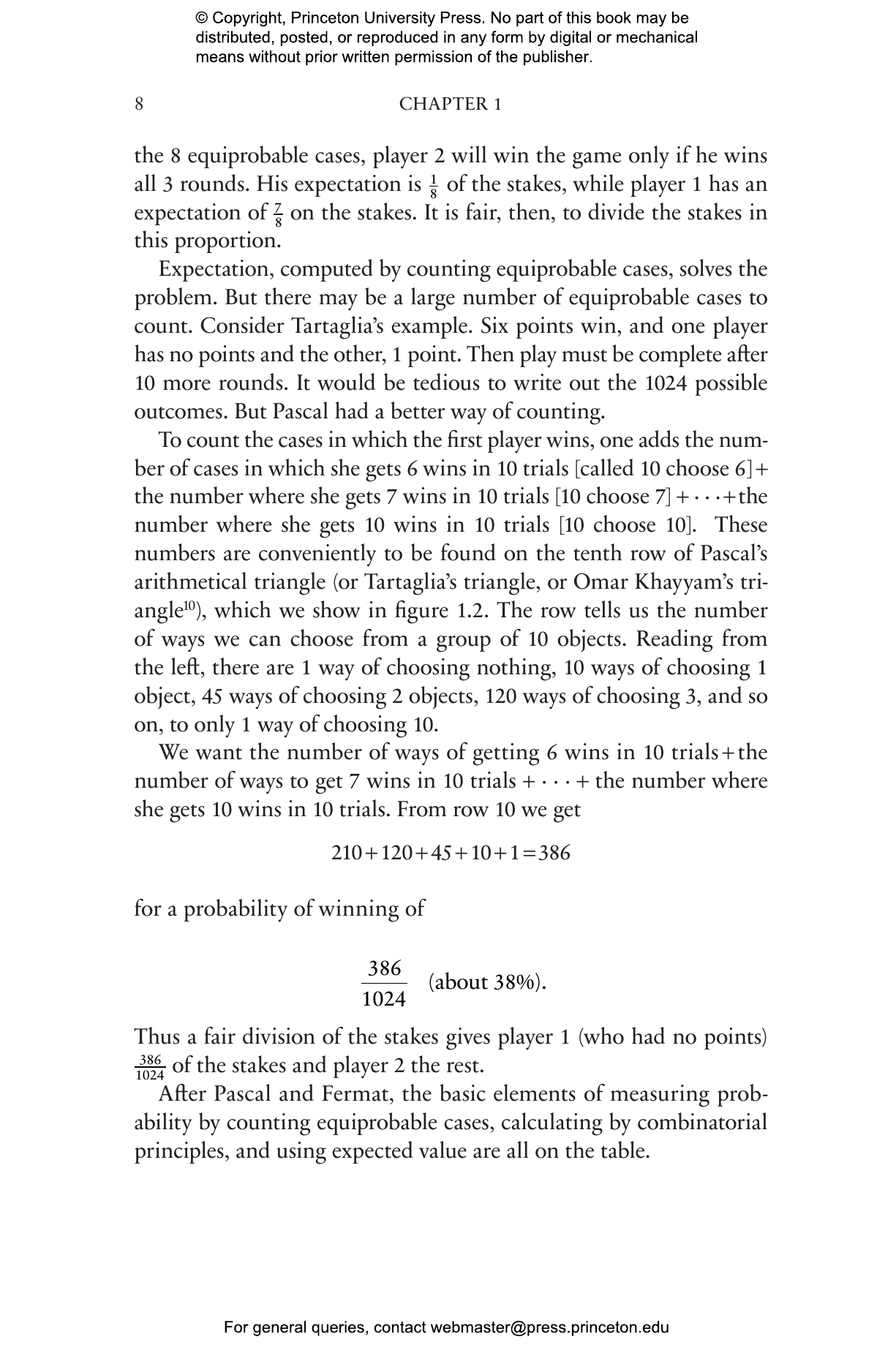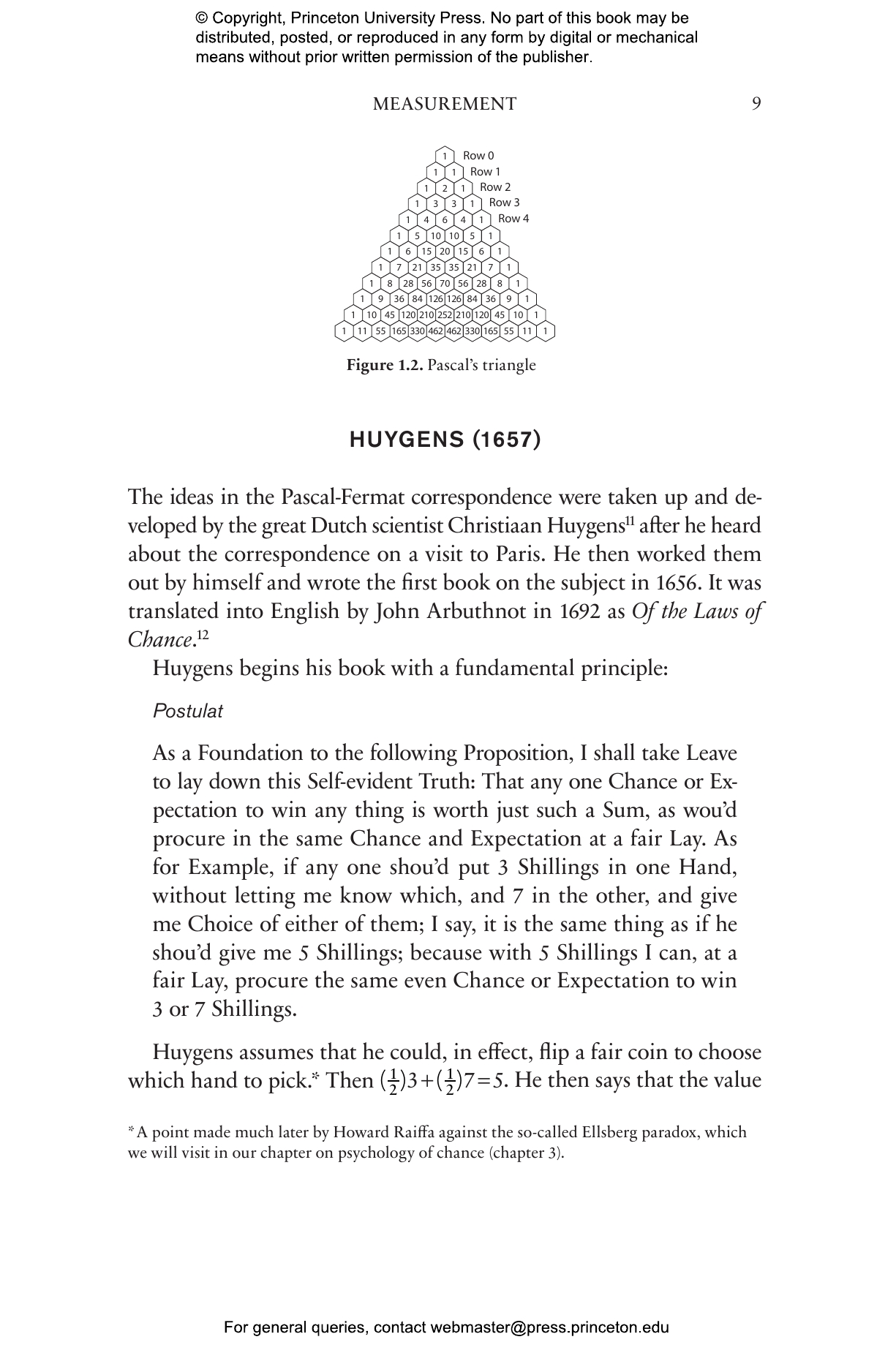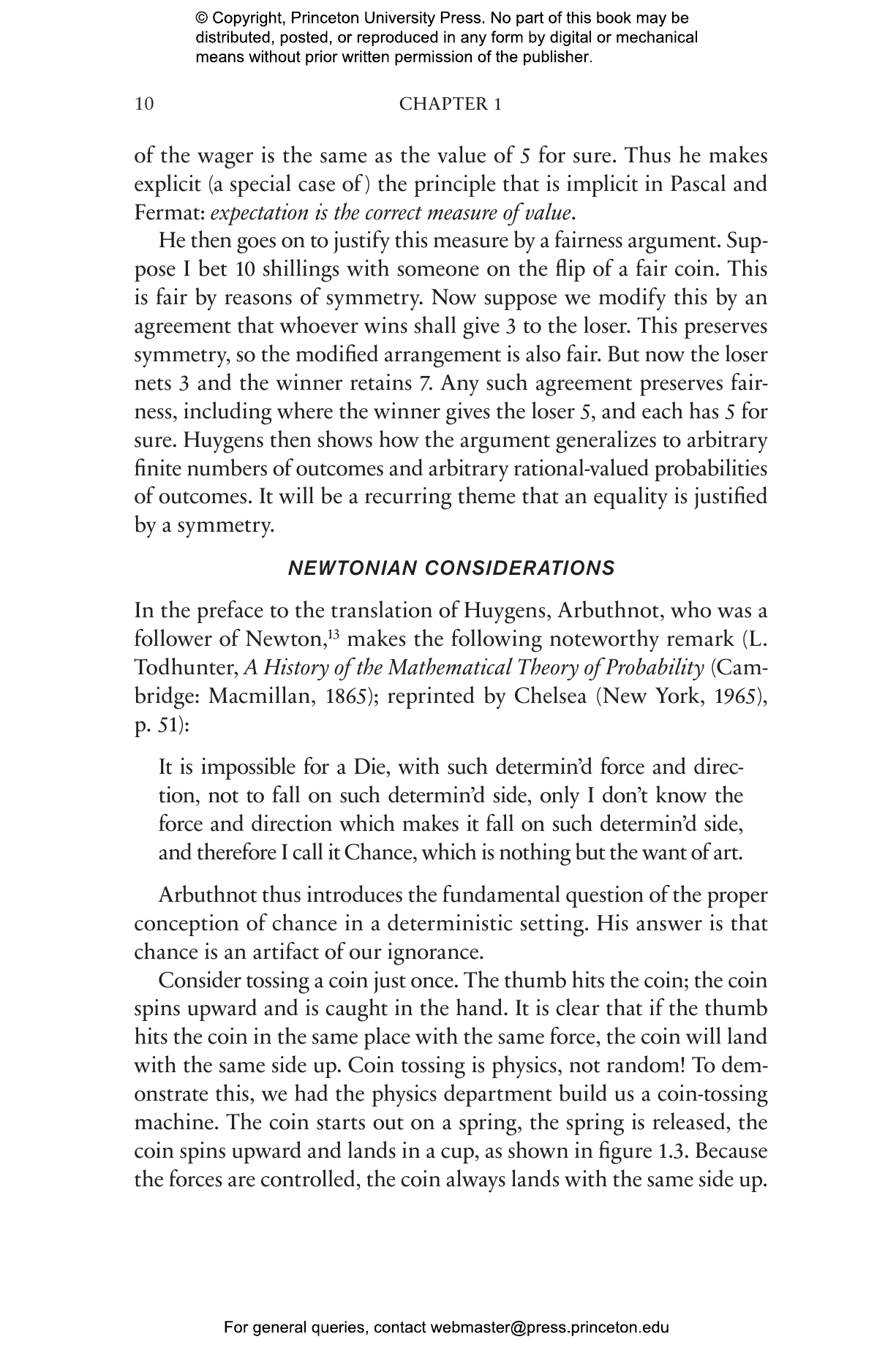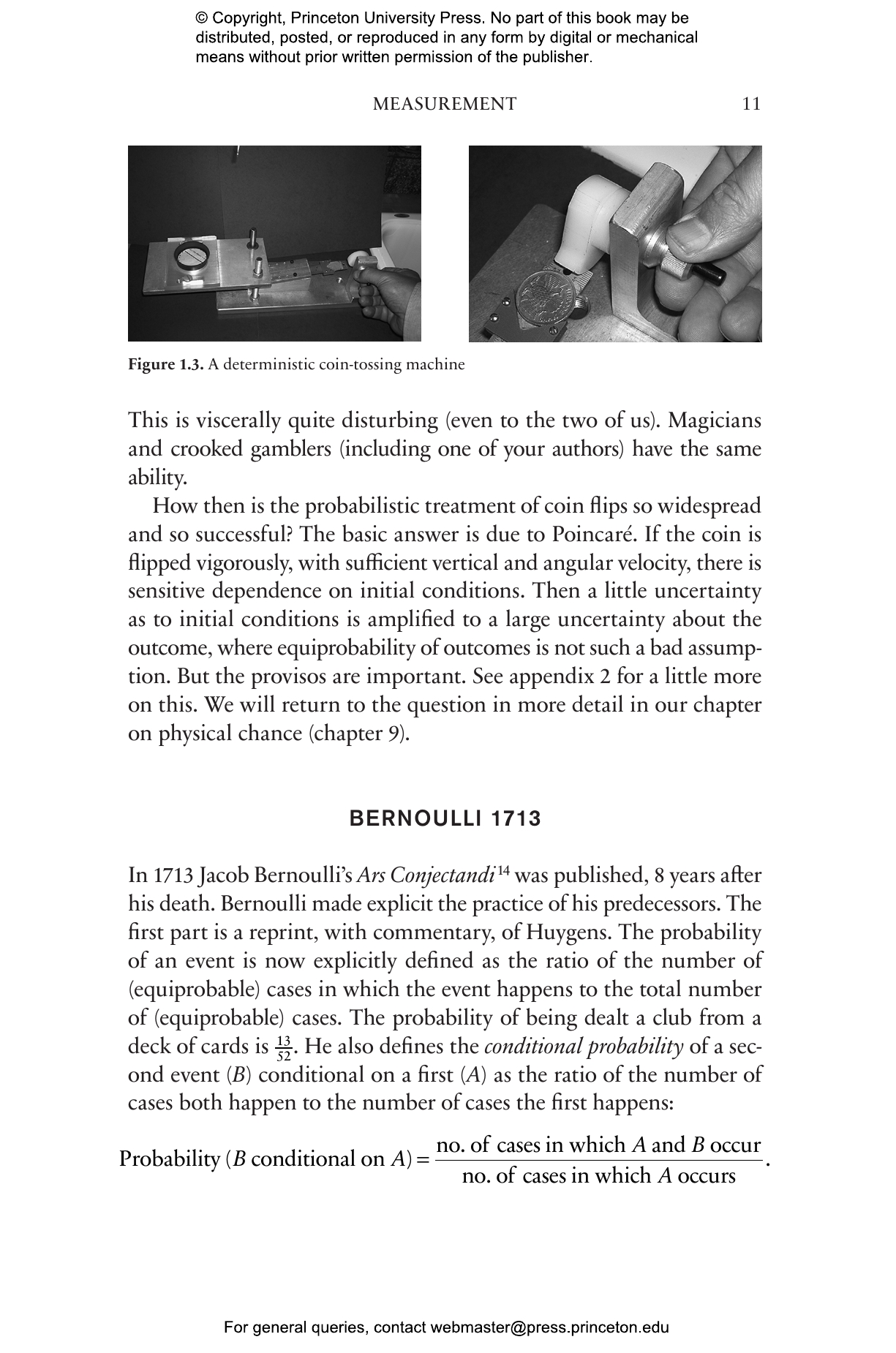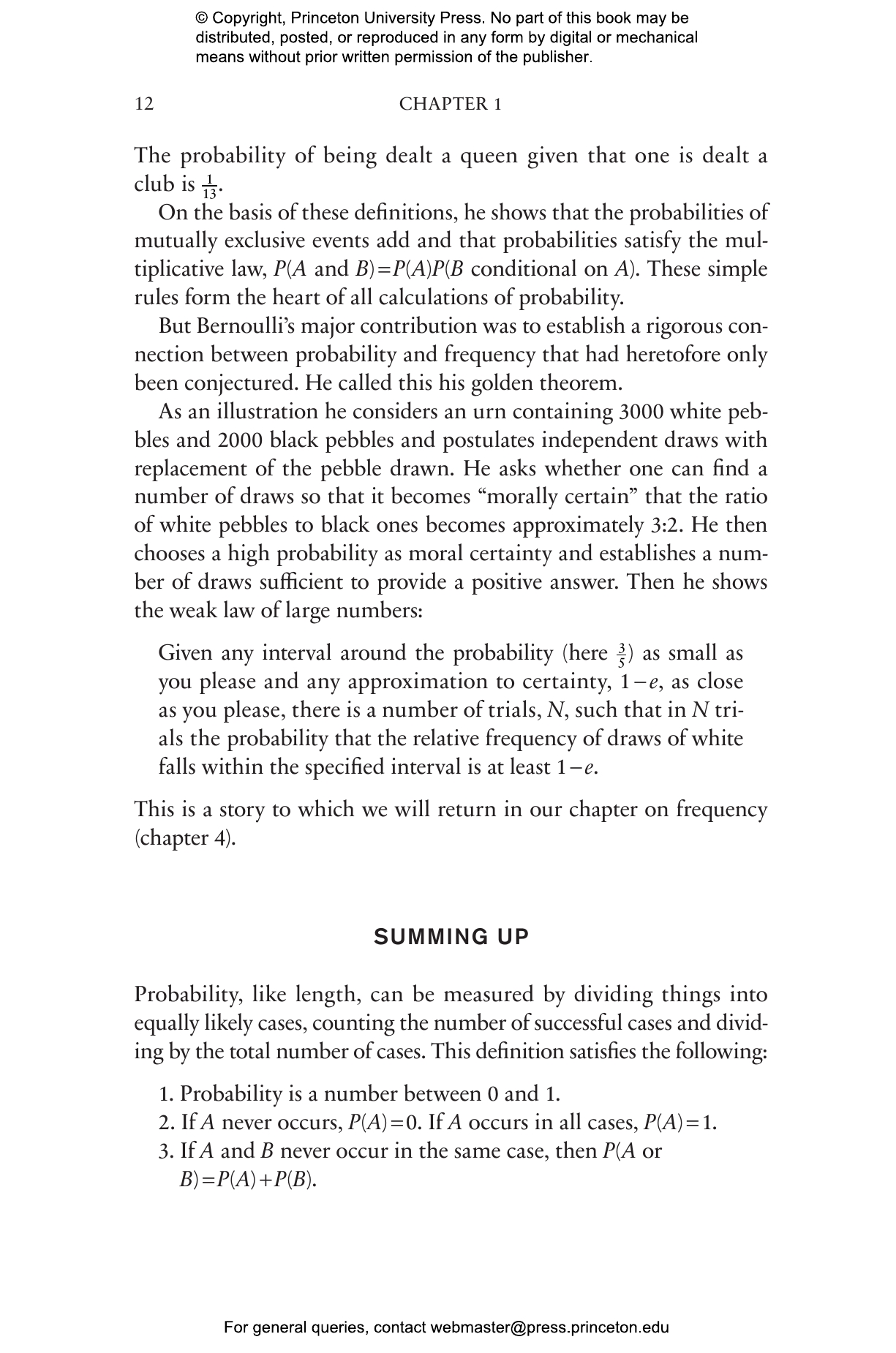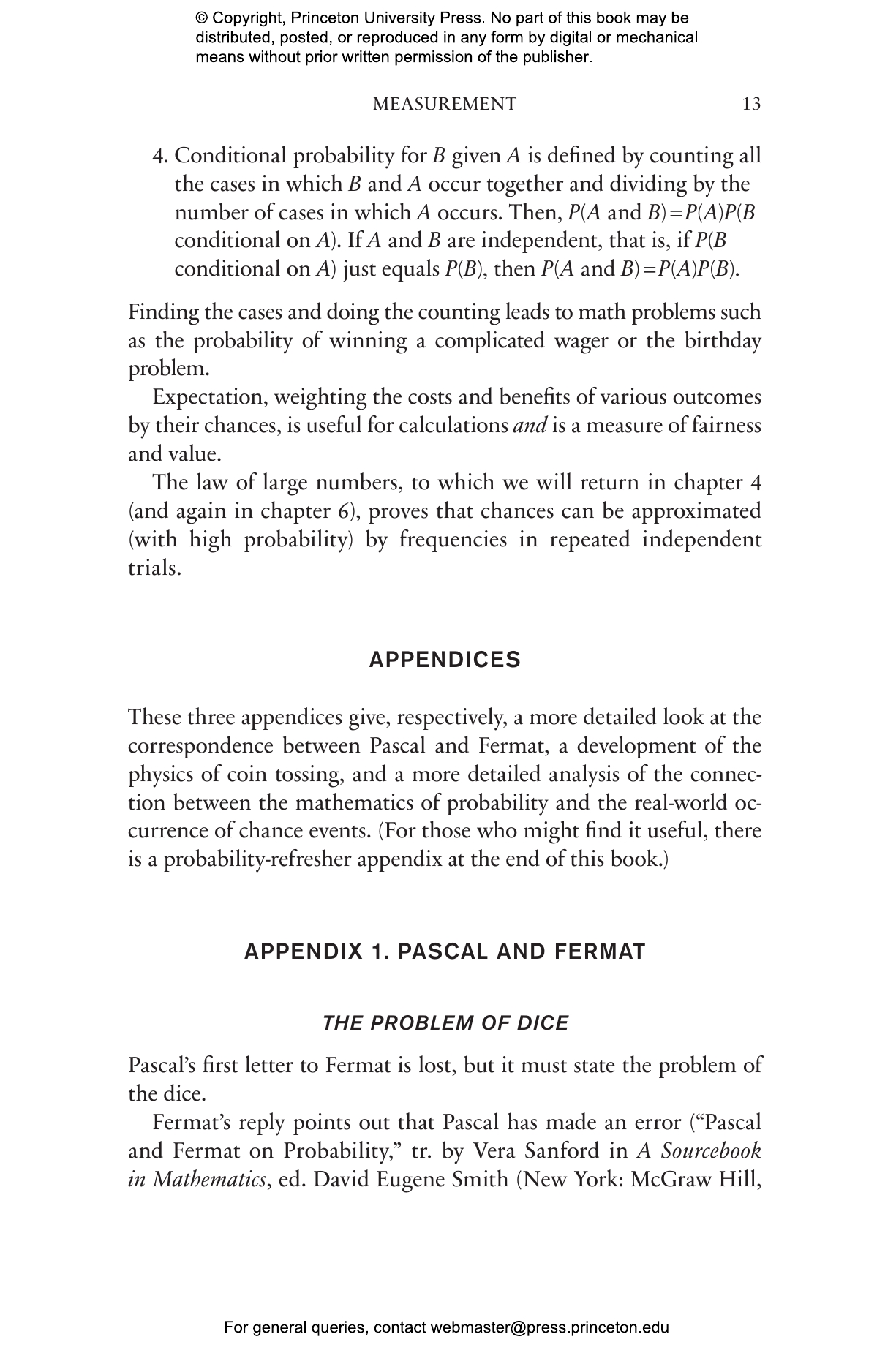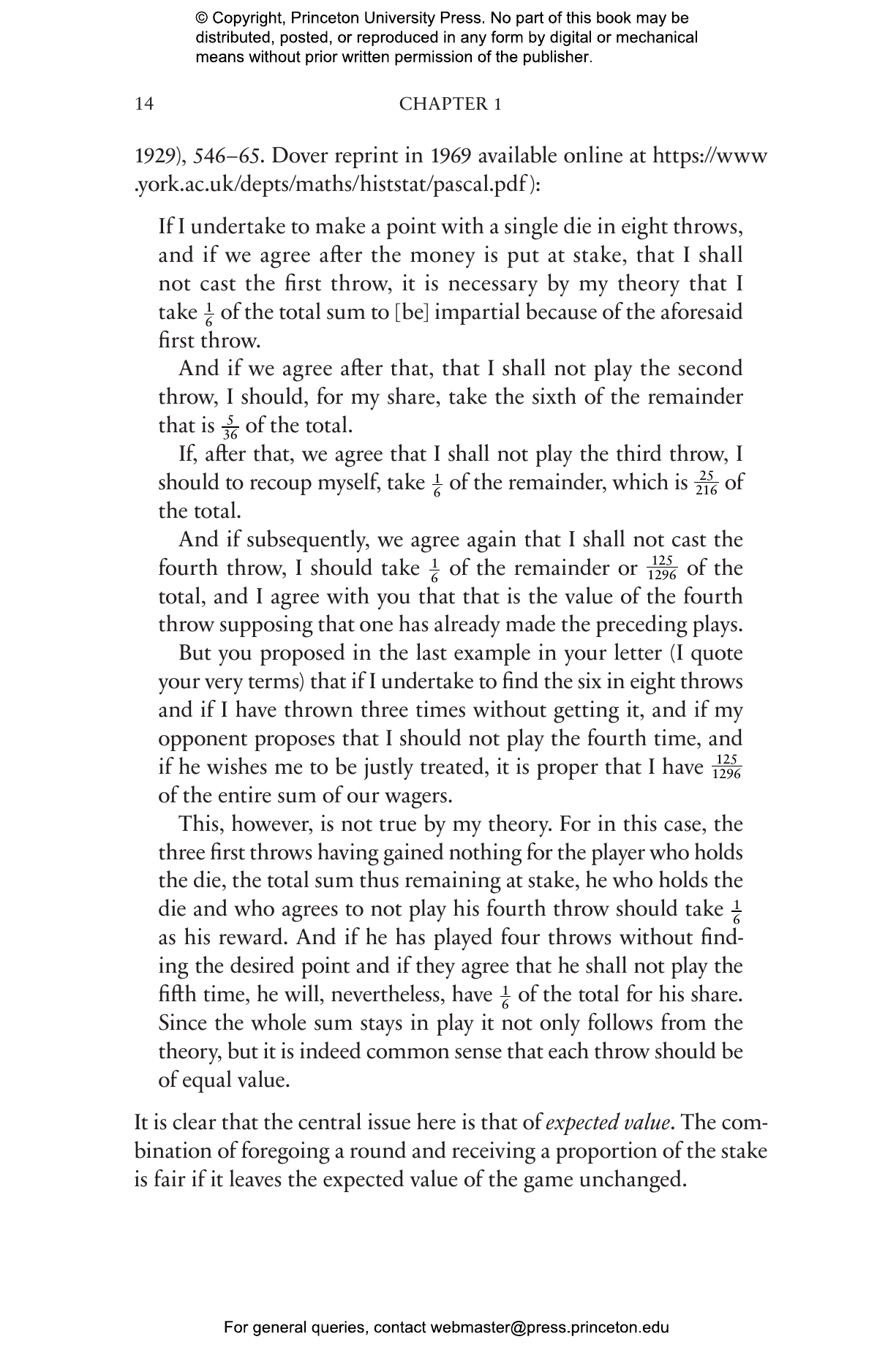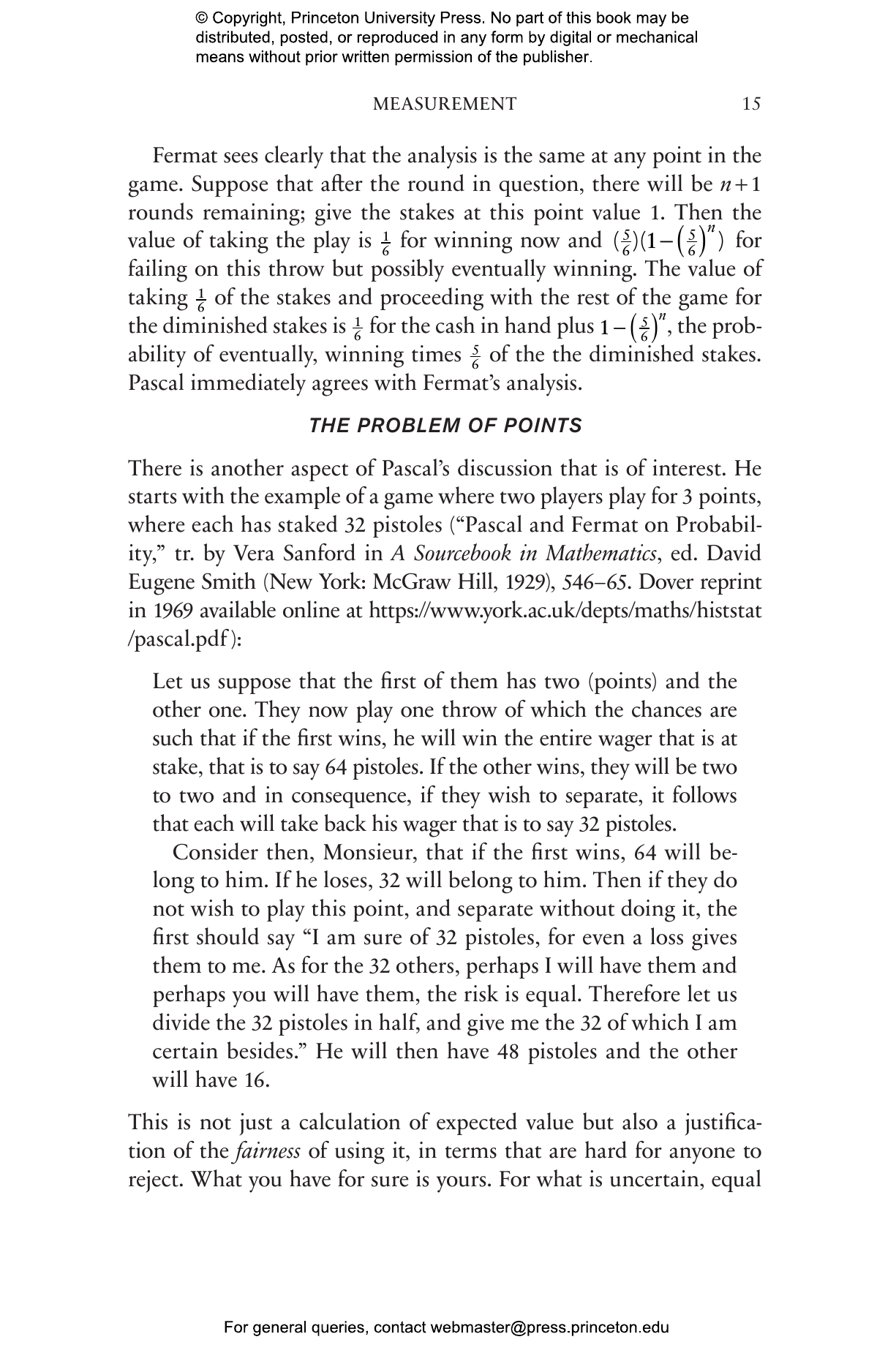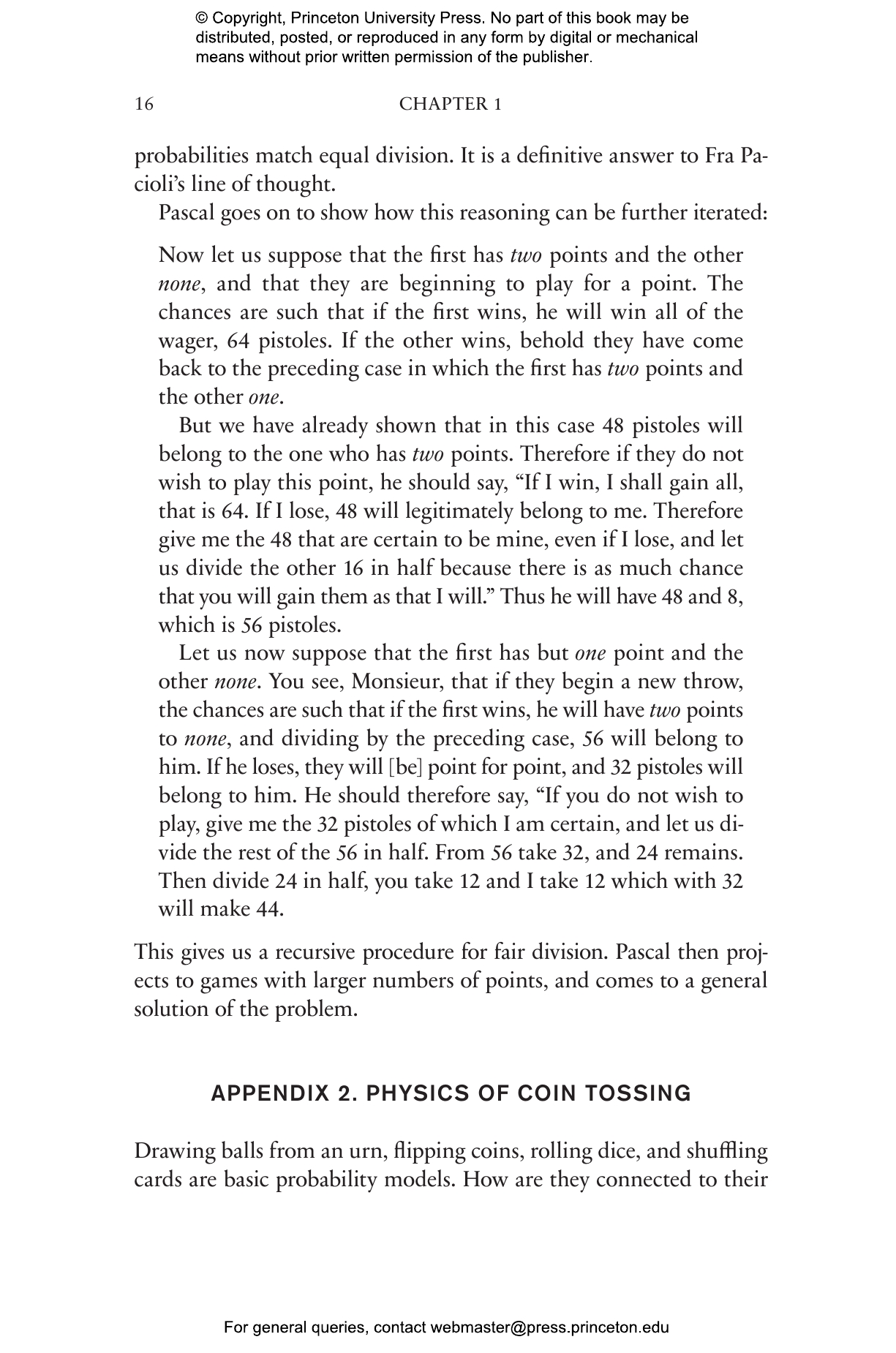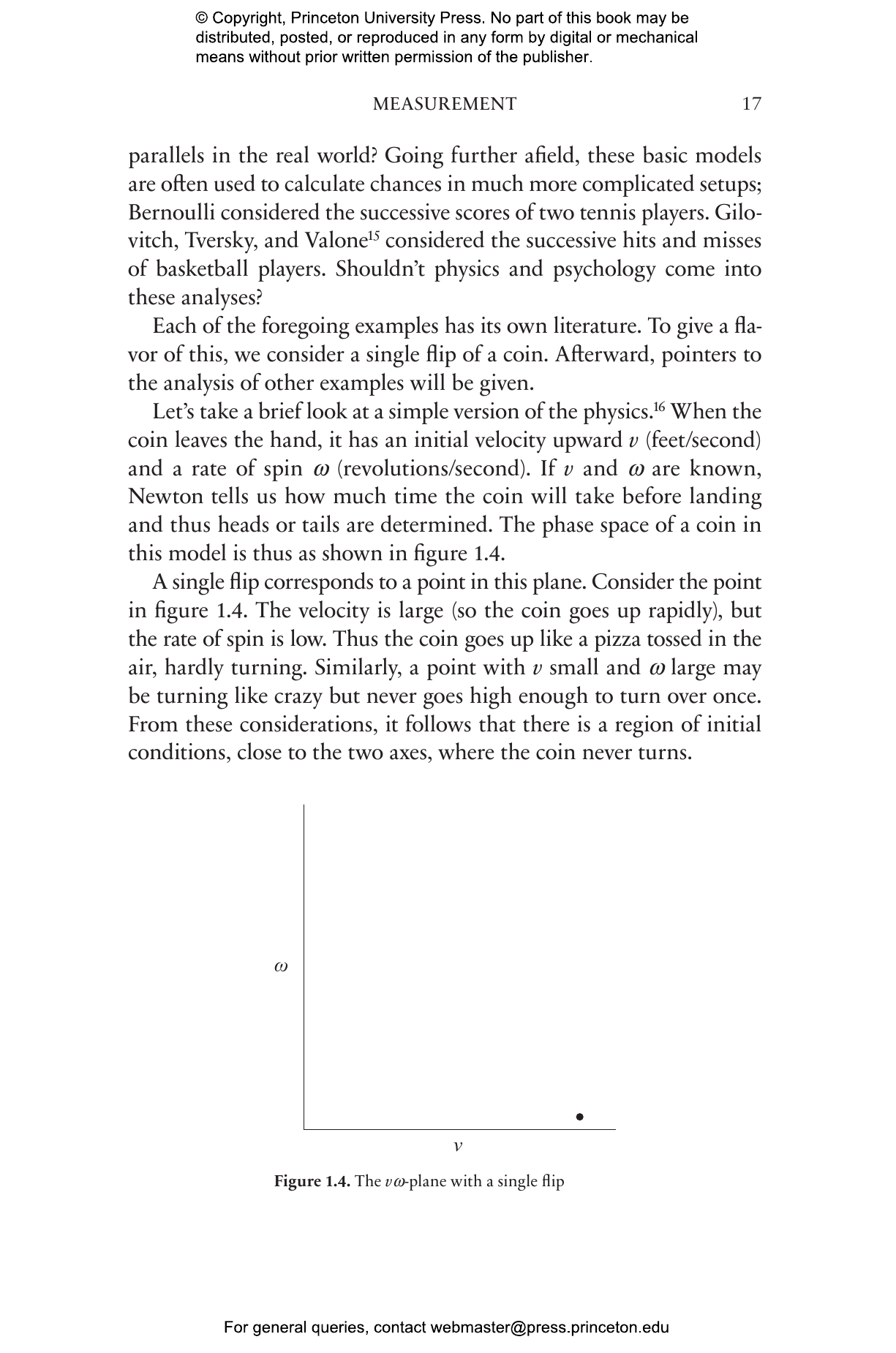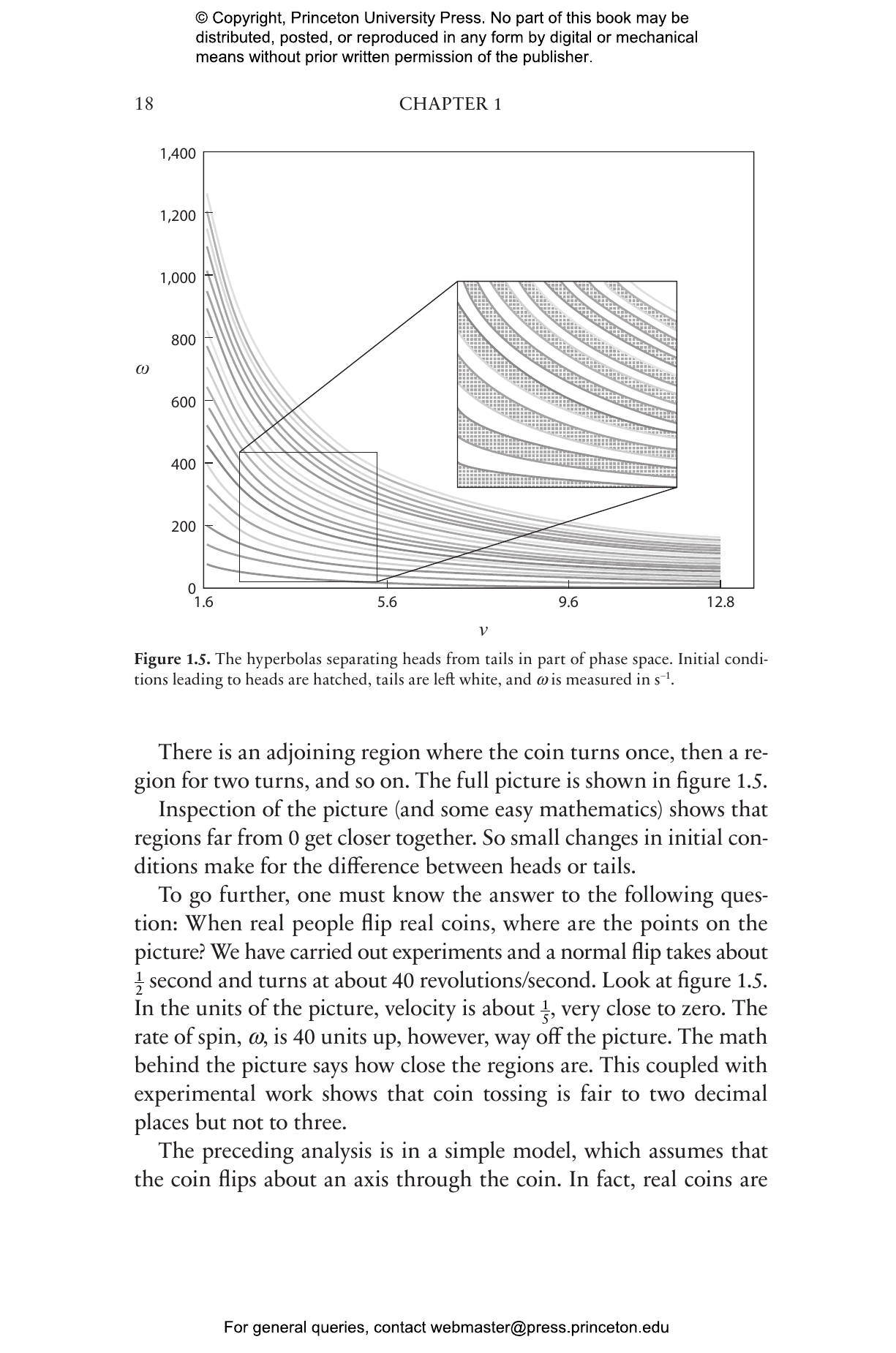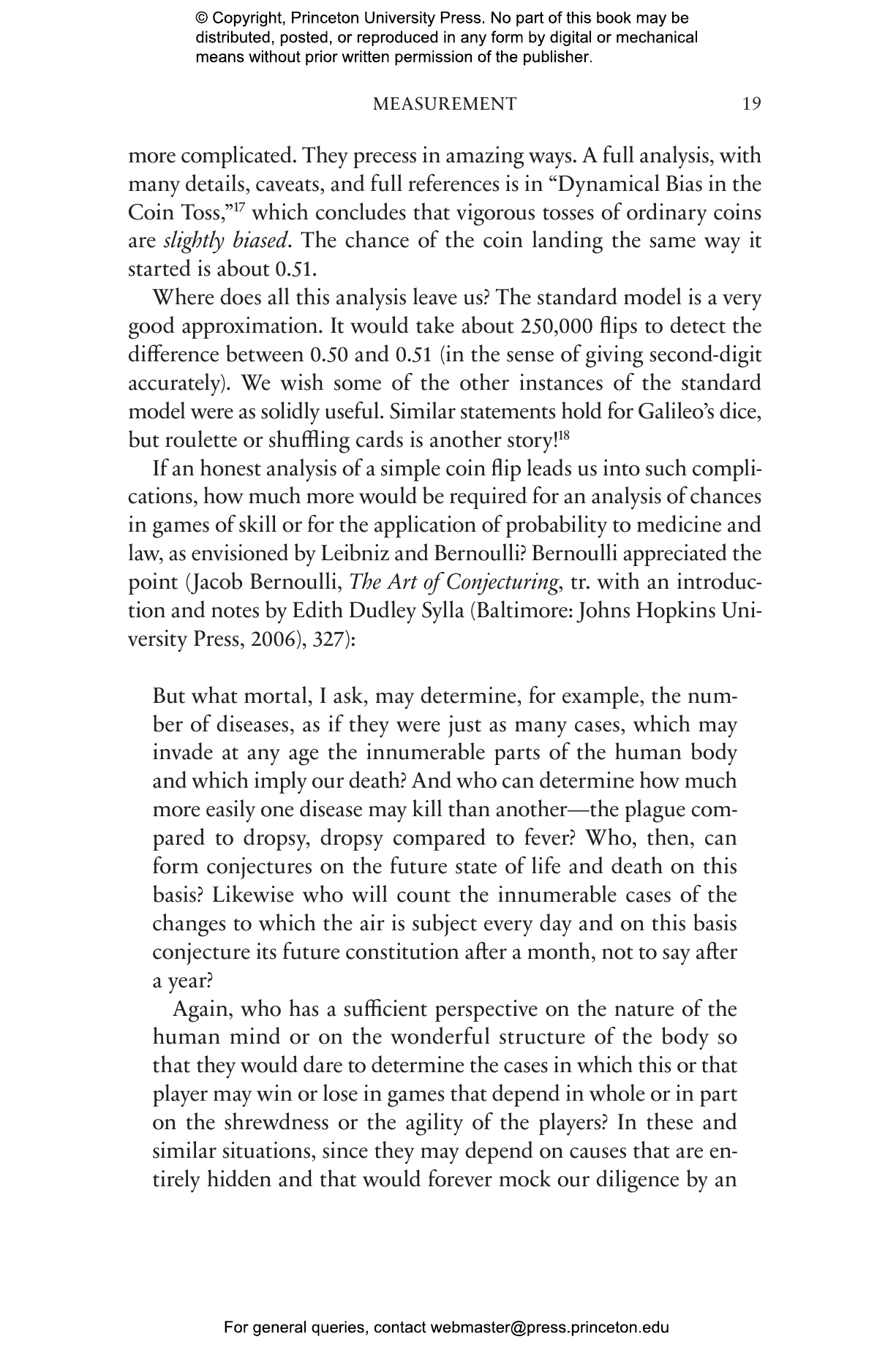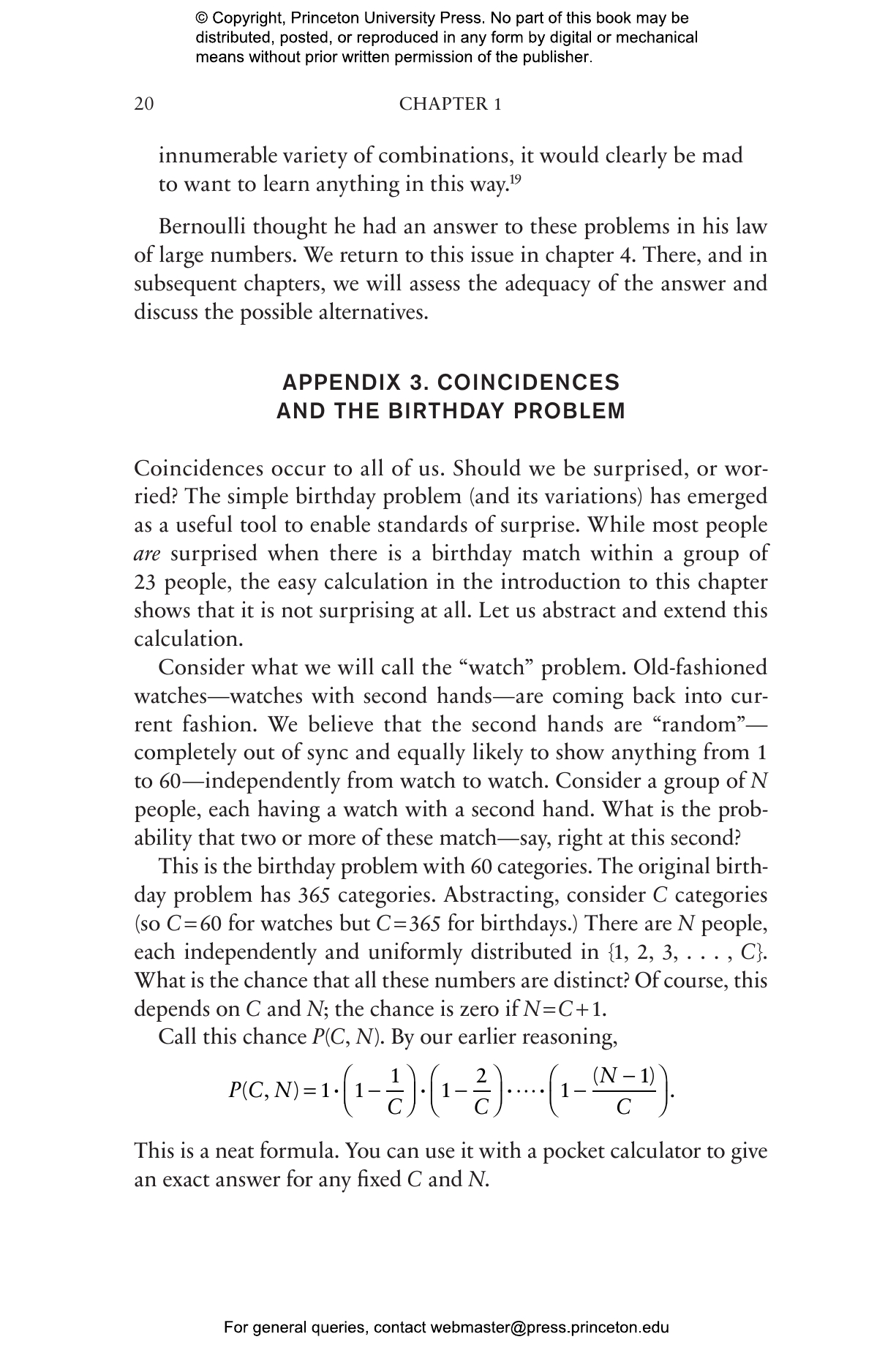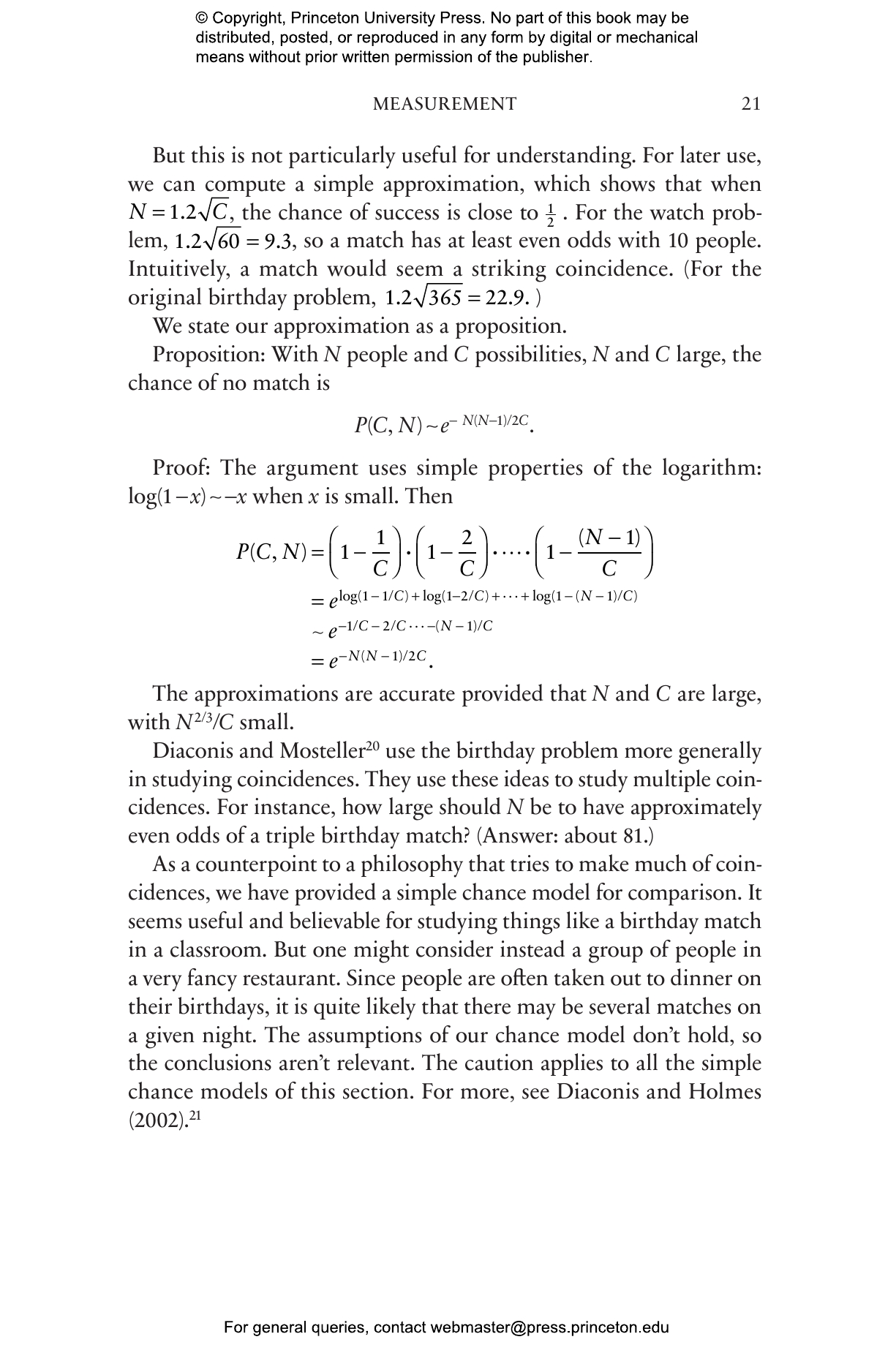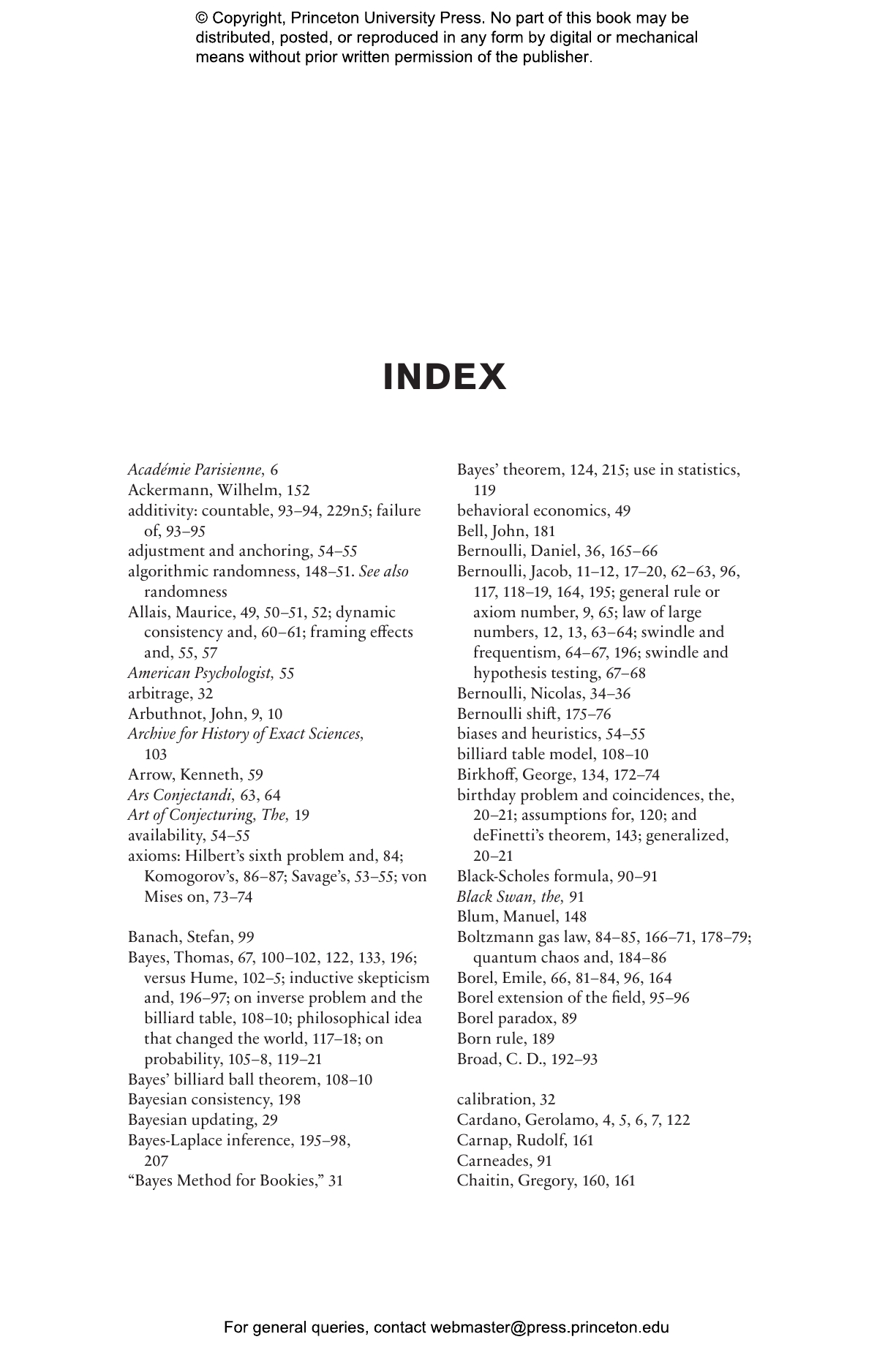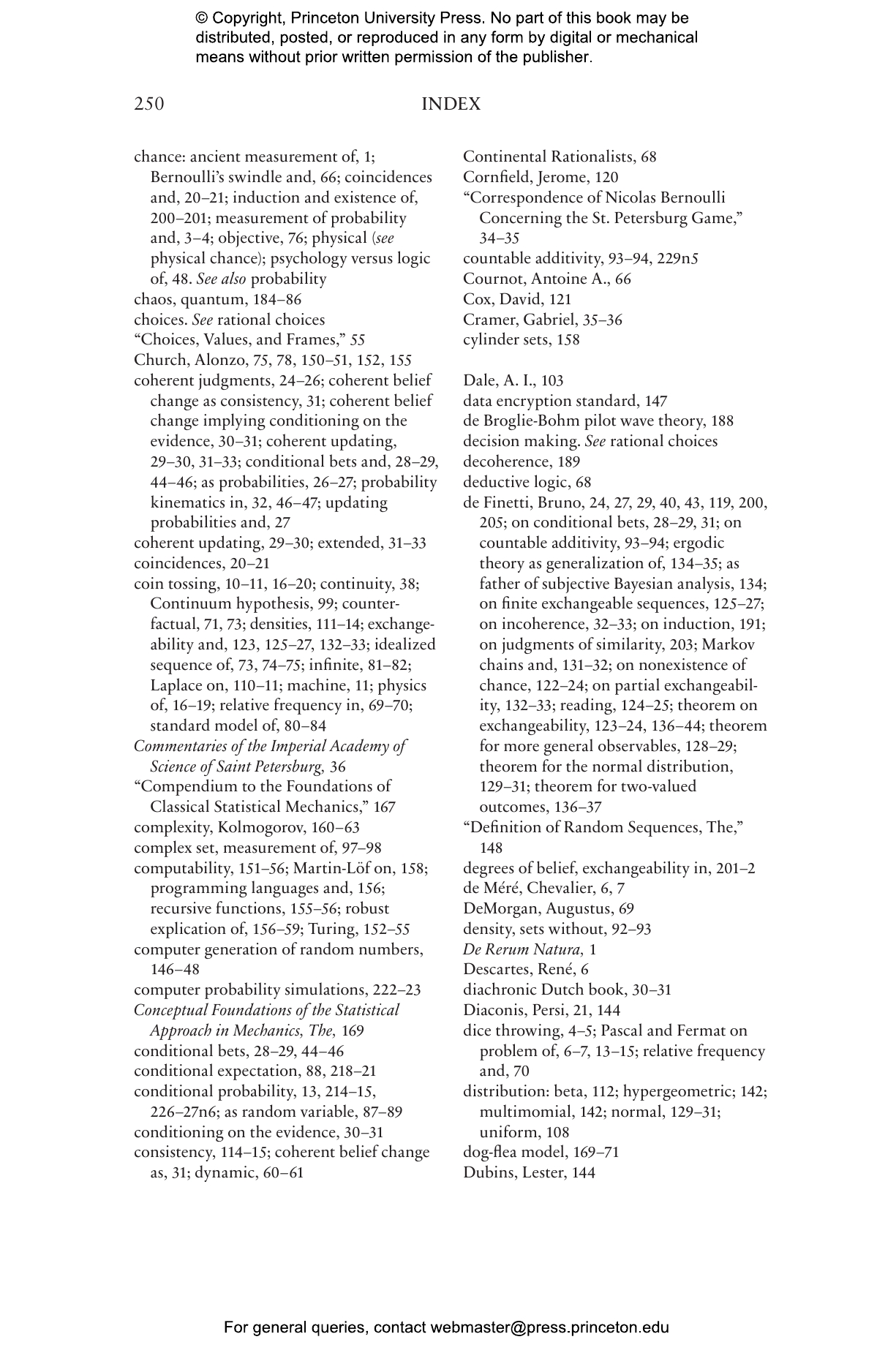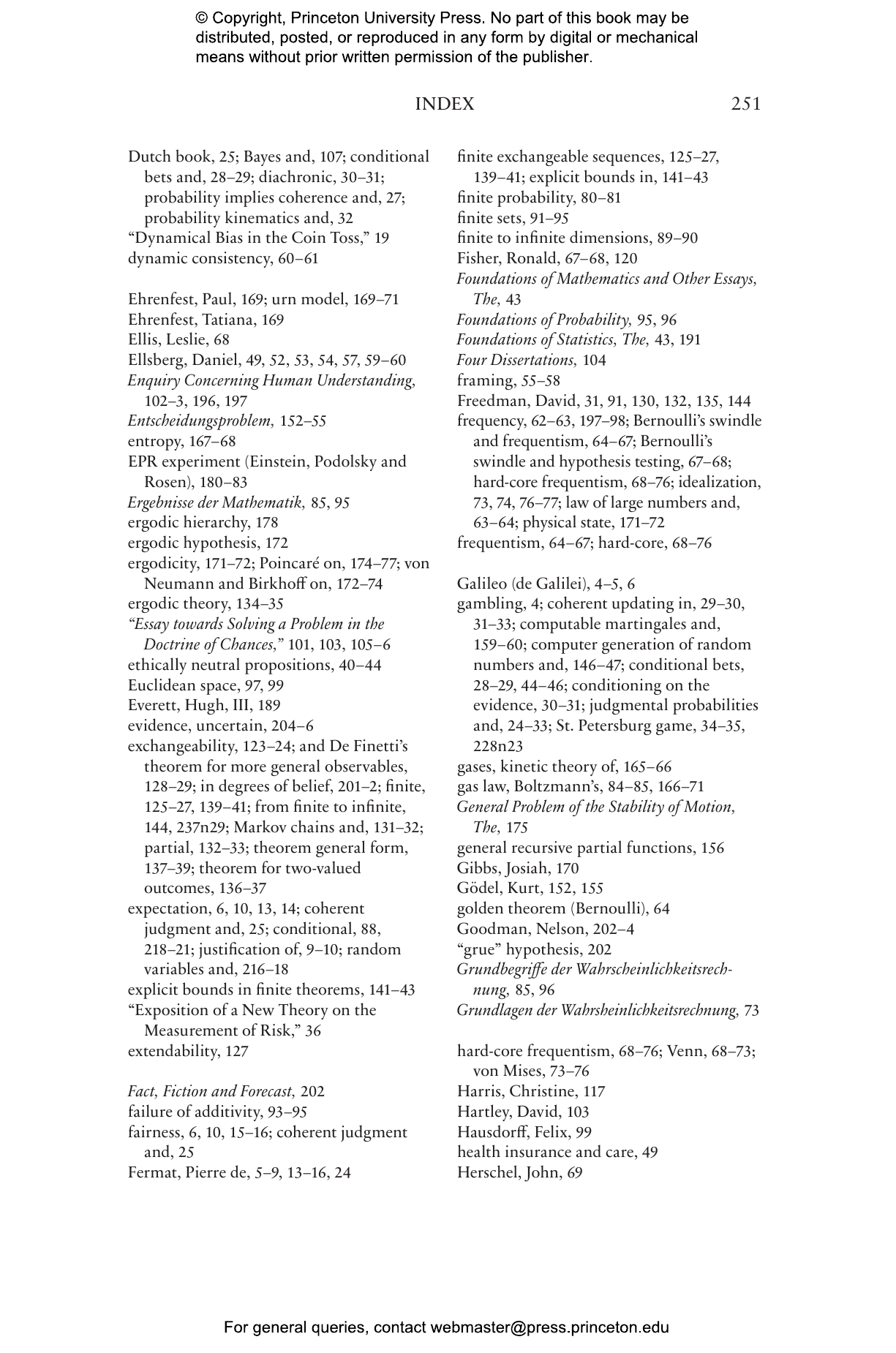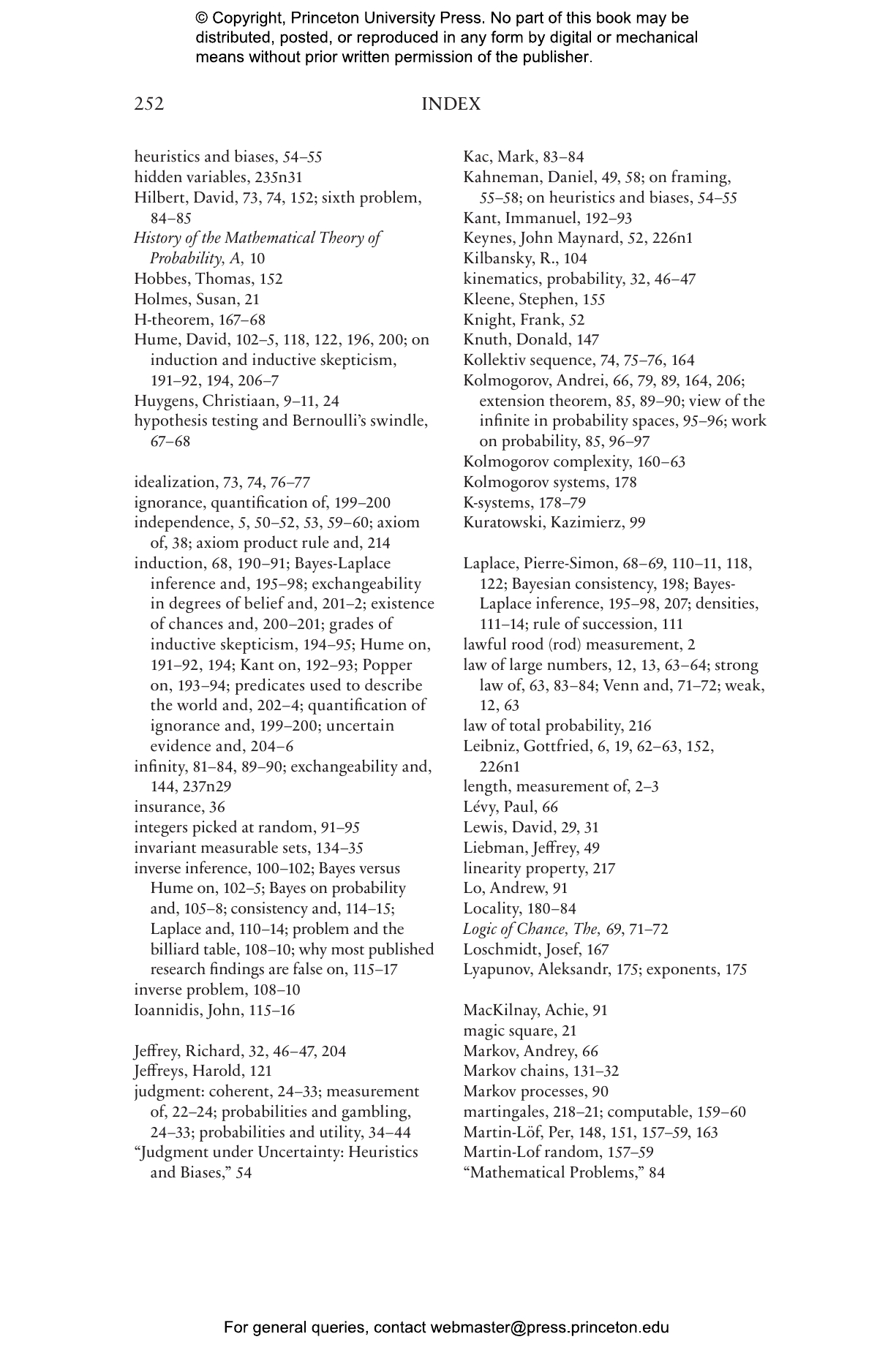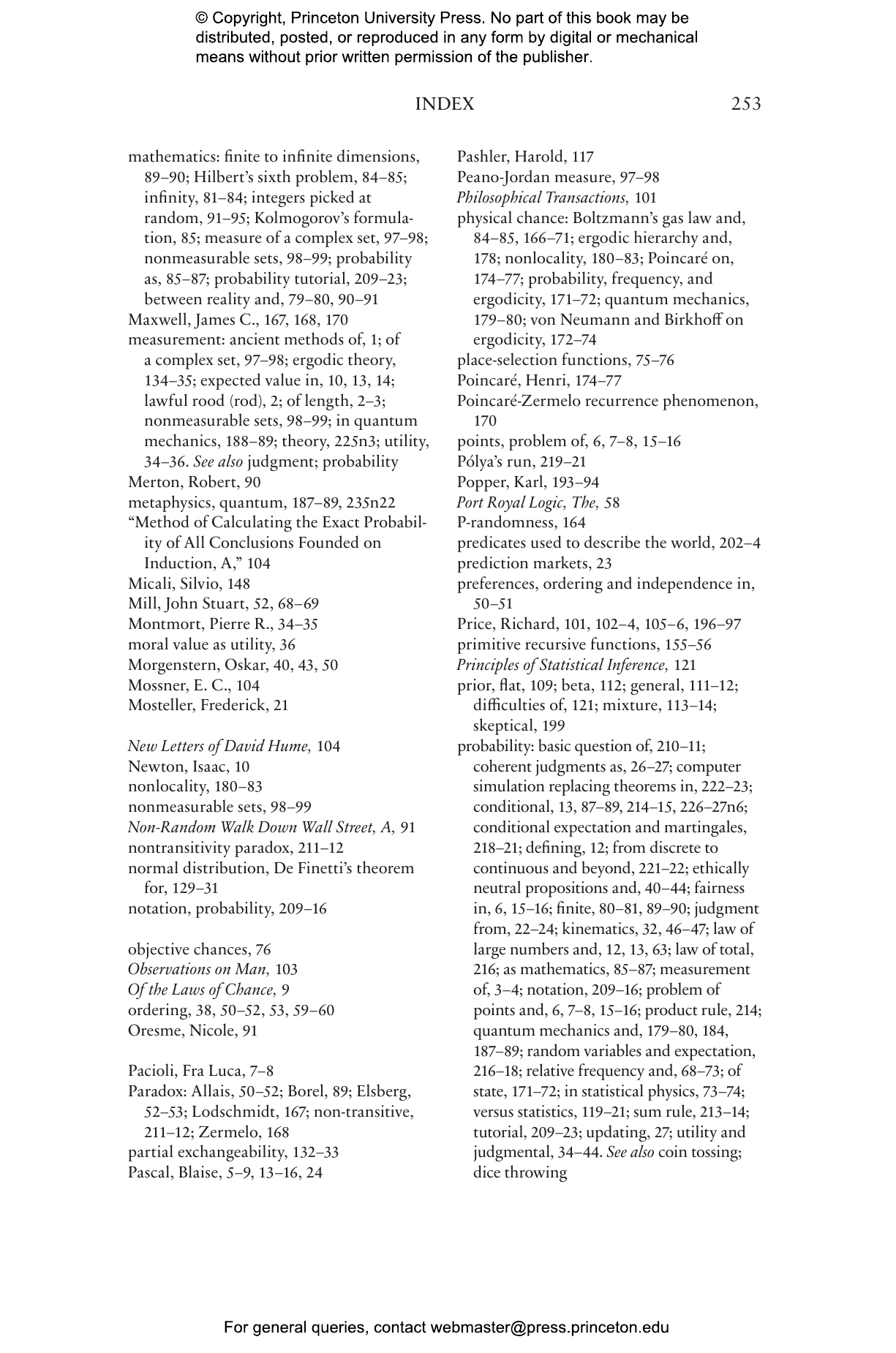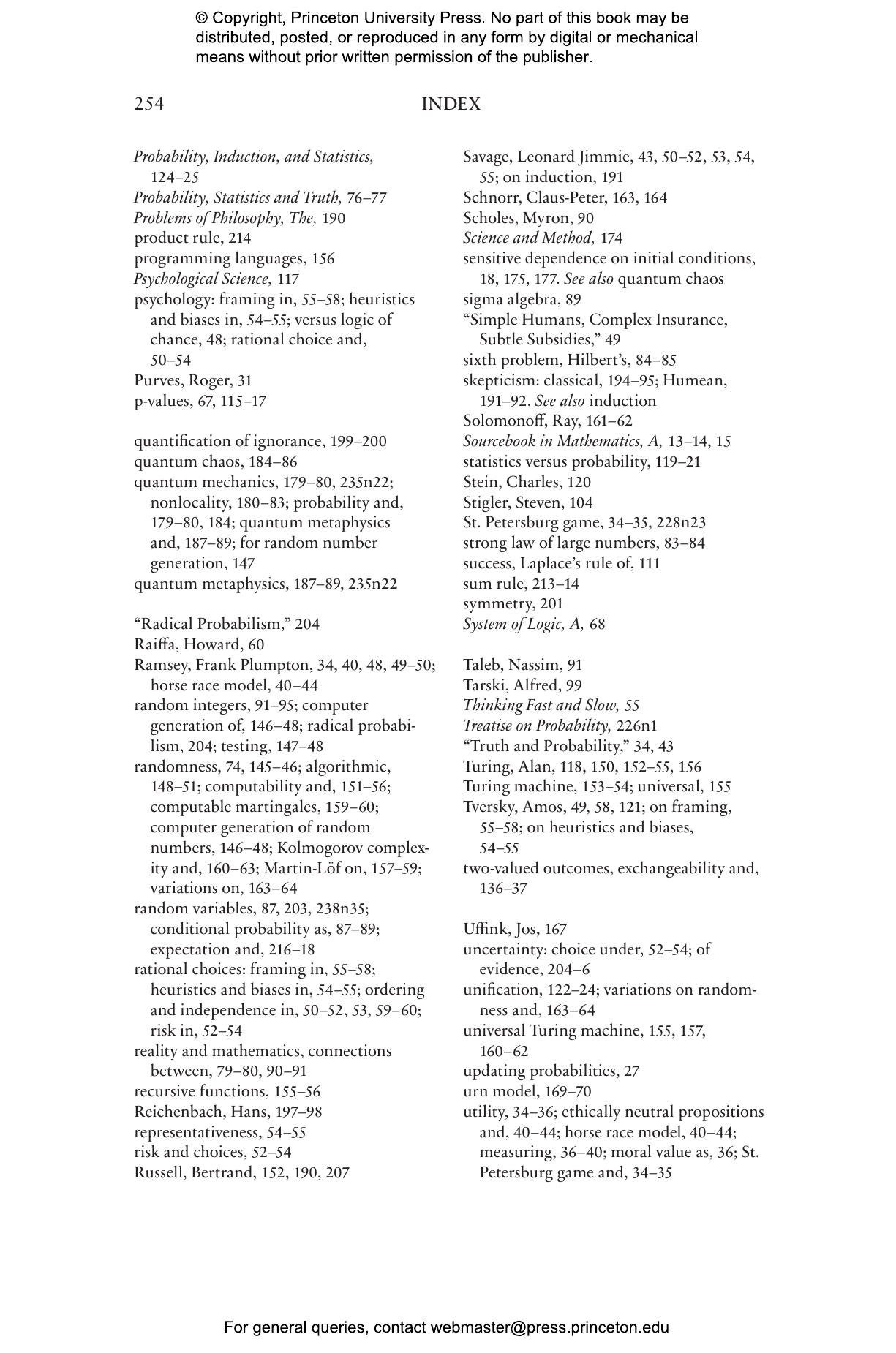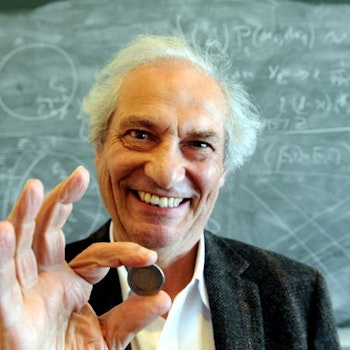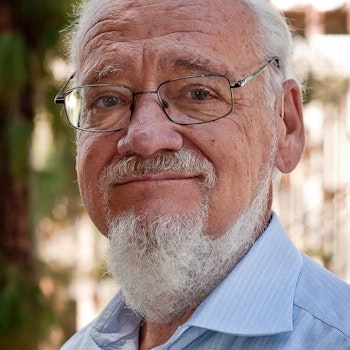In the sixteenth and seventeenth centuries, gamblers and mathematicians transformed the idea of chance from a mystery into the discipline of probability, setting the stage for a series of breakthroughs that enabled or transformed innumerable fields, from gambling, mathematics, statistics, economics, and finance to physics and computer science. This book tells the story of ten great ideas about chance and the thinkers who developed them, tracing the philosophical implications of these ideas as well as their mathematical impact.
Persi Diaconis and Brian Skyrms begin with Gerolamo Cardano, a sixteenth-century physician, mathematician, and professional gambler who helped develop the idea that chance actually can be measured. They describe how later thinkers showed how the judgment of chance also can be measured, how frequency is related to chance, and how chance, judgment, and frequency could be unified. Diaconis and Skyrms explain how Thomas Bayes laid the foundation of modern statistics, and they explore David Hume’s problem of induction, Andrey Kolmogorov’s general mathematical framework for probability, the application of computability to chance, and why chance is essential to modern physics. A final idea—that we are psychologically predisposed to error when judging chance—is taken up through the work of Daniel Kahneman and Amos Tversky.
Complete with a brief probability refresher, Ten Great Ideas about Chance is certain to be a hit with anyone who wants to understand the secrets of probability and how they were discovered.
"A historical and philosophical tour of major insights in the development of probability theory."—James Ryerson, New York Times Book Review
"A volume that should be on every scientist’s reading list."—Barbara Kiser, Nature
"Mathematically rigorous, yet also reasonably accessible; informative, yet fun and entertaining to read. Both students and faculty should find reading this to be a rewarding experience."—MAA Reviews
"The audience is quite specific, but for them it will be a gem. . . . I would recommend this to any student studying or having studied anything statistics related at university."—Jonathan Shock, Mathemafrica
"A very enriching journey. Your vision will be broadened assimilating all these issues and solutions as well as open problems from the early history of probability, game theory, financial markets, politics, thermodynamics, quantum theory and much much more."—Adhemar Bultheel, European Mathematical Society
"A great book for anyone who wants to understand some of the central tenets of probability, how they were discovered, and how they can be tamed in our day-to-day lives."—ZME Science
"This book will not increase your odds of winning at games of chance, but it will give you some greater understanding of why you lose."—Cosmos
"Ten Great Ideas about Chance isn’t just about 18th century philosophical arguments, World War II events or tests of expensive, hard-to-pronounce drugs. The book’s ideas are as down to earth and as current as your busted bracket for NCAA Men’s Basketball."—Herald Business Journal
"To anyone with an interest in probability or statistics, this is a book you must read. . . . [It] is far-ranging and can be read at many levels, from the novice to the expert. It is also thoroughly engaging, written in a conversational style with many examples and asides and an emphasis throughout on the people who have built the theory."—David M. Bressoud, UMAP Journal
"A terrific book. The authors explain 10 great ideas in probability, starting from their history and pursuing their philosophical implications."—Eric S. Rosenthal, Mathematics Magazine
"In this attractively written book, which is rigorous yet informal, Persi Diaconis and Brian Skyrms dispel the confusion about chance and randomness. They range from coin tosses to particle physics and show how chance and probability baffled the best minds for centuries. I cannot imagine a more accessible account of these deep and difficult ideas."—Jon Elster, Columbia University and Collège de France
"There is something fundamentally paradoxical about probability theory, as a mathematical language for saying precisely what we do not know. In this book, an eminent philosopher and mathematician guide us through the resolution of these paradoxes, to offer a deeper understanding of how we can analyze problems of uncertainty in the world."—Roger Myerson, University of Chicago
"One should add an eleventh great idea to Ten Great Ideas about Chance: namely, for probabilist, statistician, and magician Persi Diaconis and philosopher of science Brian Skyrms to write a book about the subject! This fascinating book mingles the foundations of probability with history and philosophy, covering topics that include the uncertain and elusive notion of inference, and bringing forth a broad and powerful vision of concepts that should appeal to both specialists and general science readers."—Christian P. Robert, Université Paris-Dauphine and University of Warwick
"This wonderful book looks at both the nature of probability and the history of thinking on the subject, following a path that goes from coin-flipping machines to quantum physics via psychology and behavioral economics. It will fascinate general readers and stimulate constructive reflection in scientists who use probability. Outstanding!"—Stephen Schaefer, London Business School
"This compelling book is a welcome contribution to the slim body of recent works that popularize chance. It invites readers to the examples with ease, and it raises far-reaching, thought-provoking questions. I learned a huge amount of useful new information about probability theory and statistics from this book."—Joseph Mazur, author of Fluke: The Math and Myth of Coincidence
"Clear and precise, and at times pleasantly conversational, Ten Great Ideas about Chance does an excellent job of bringing together a broad array of ideas about probability, statistics, and the general problem of induction."—Steven N. Evans, University of California, Berkeley
